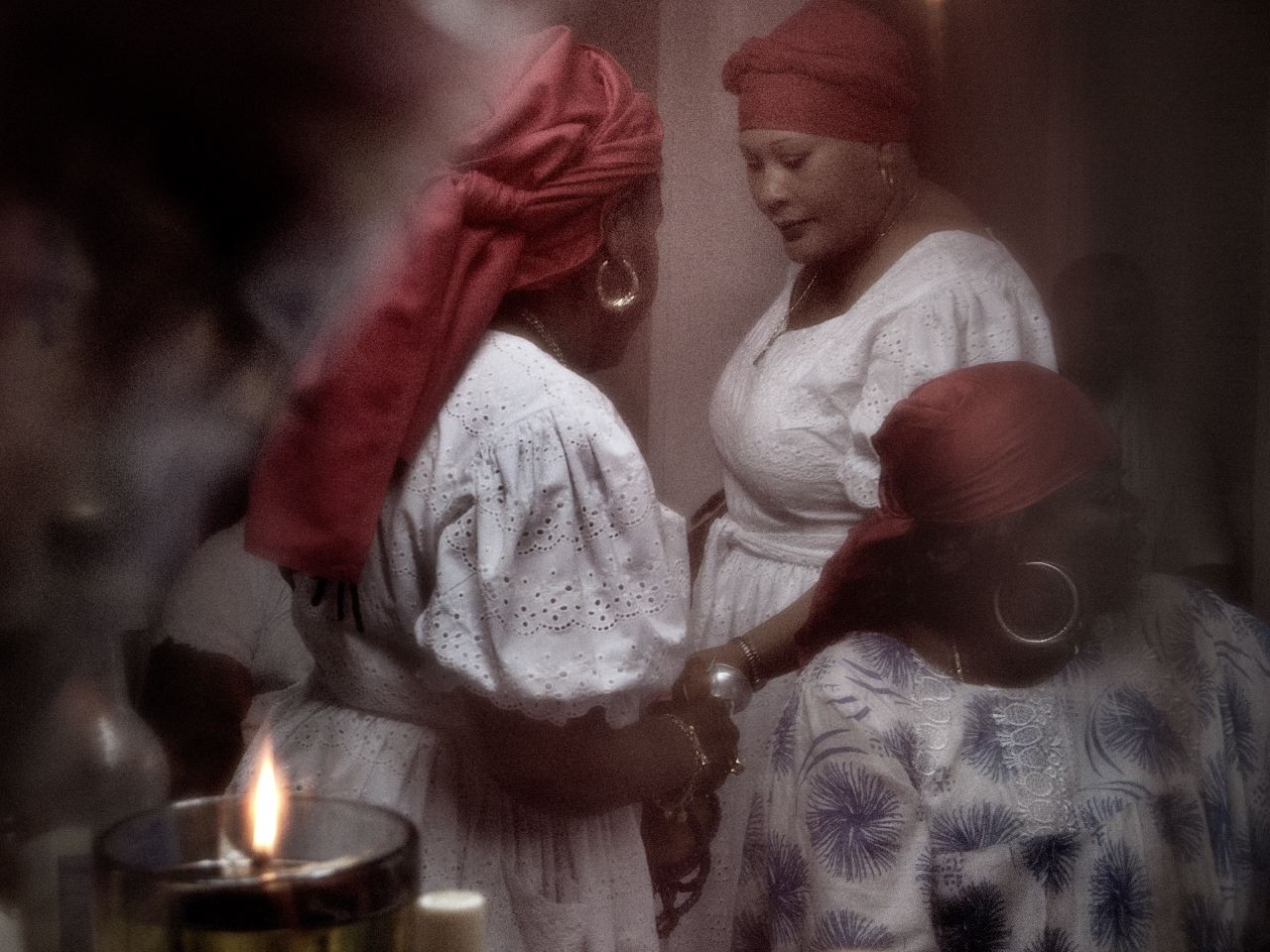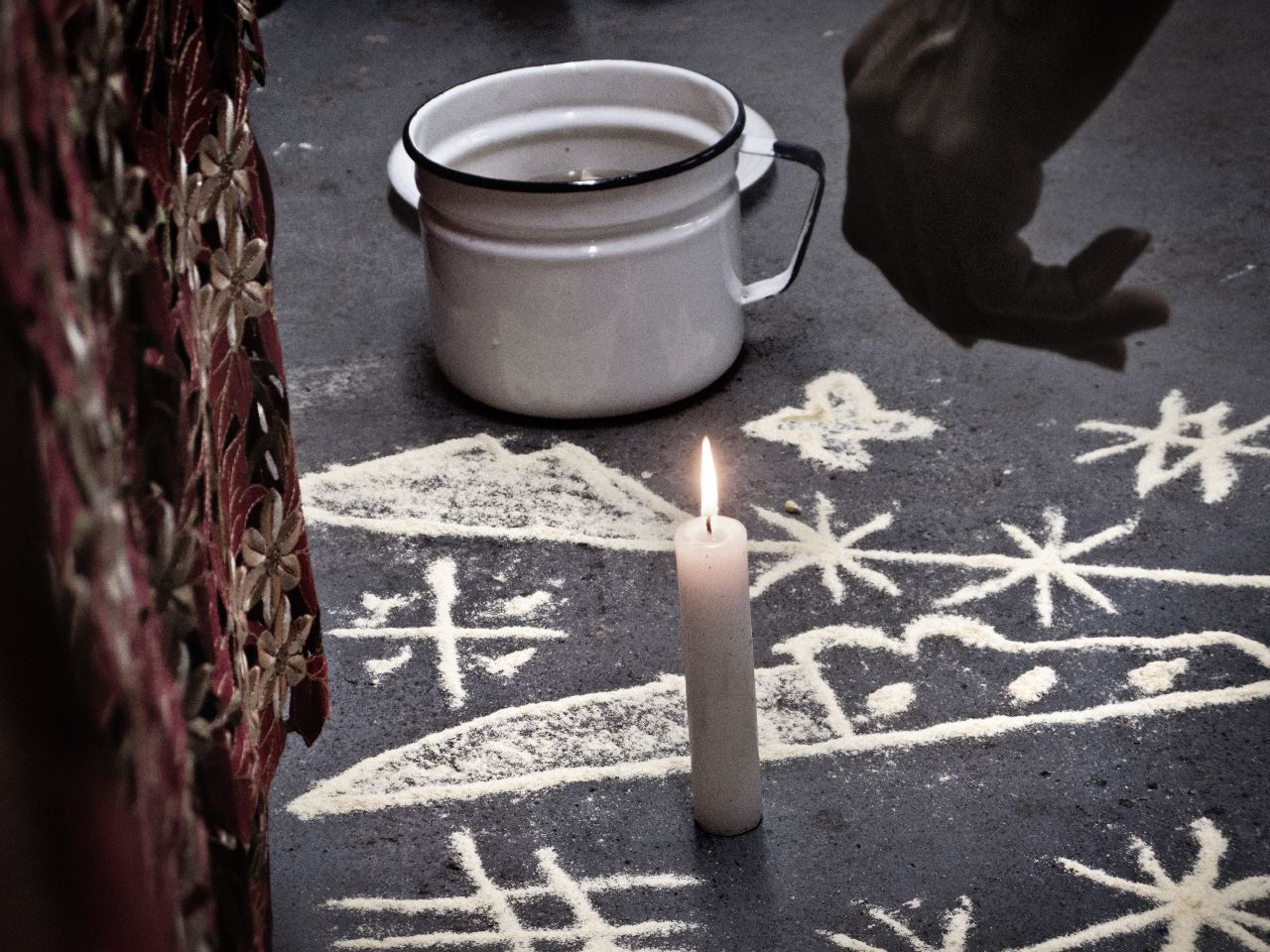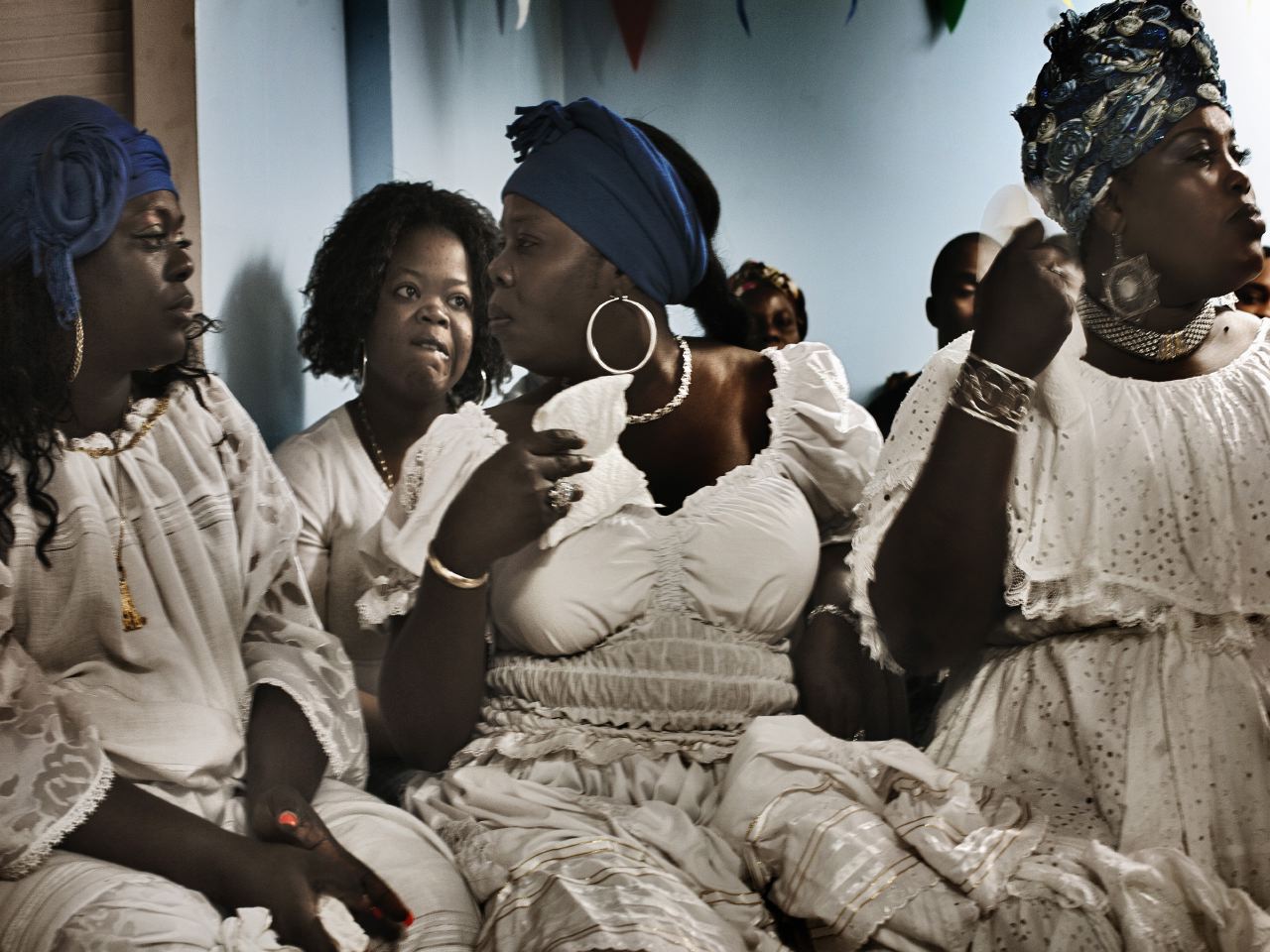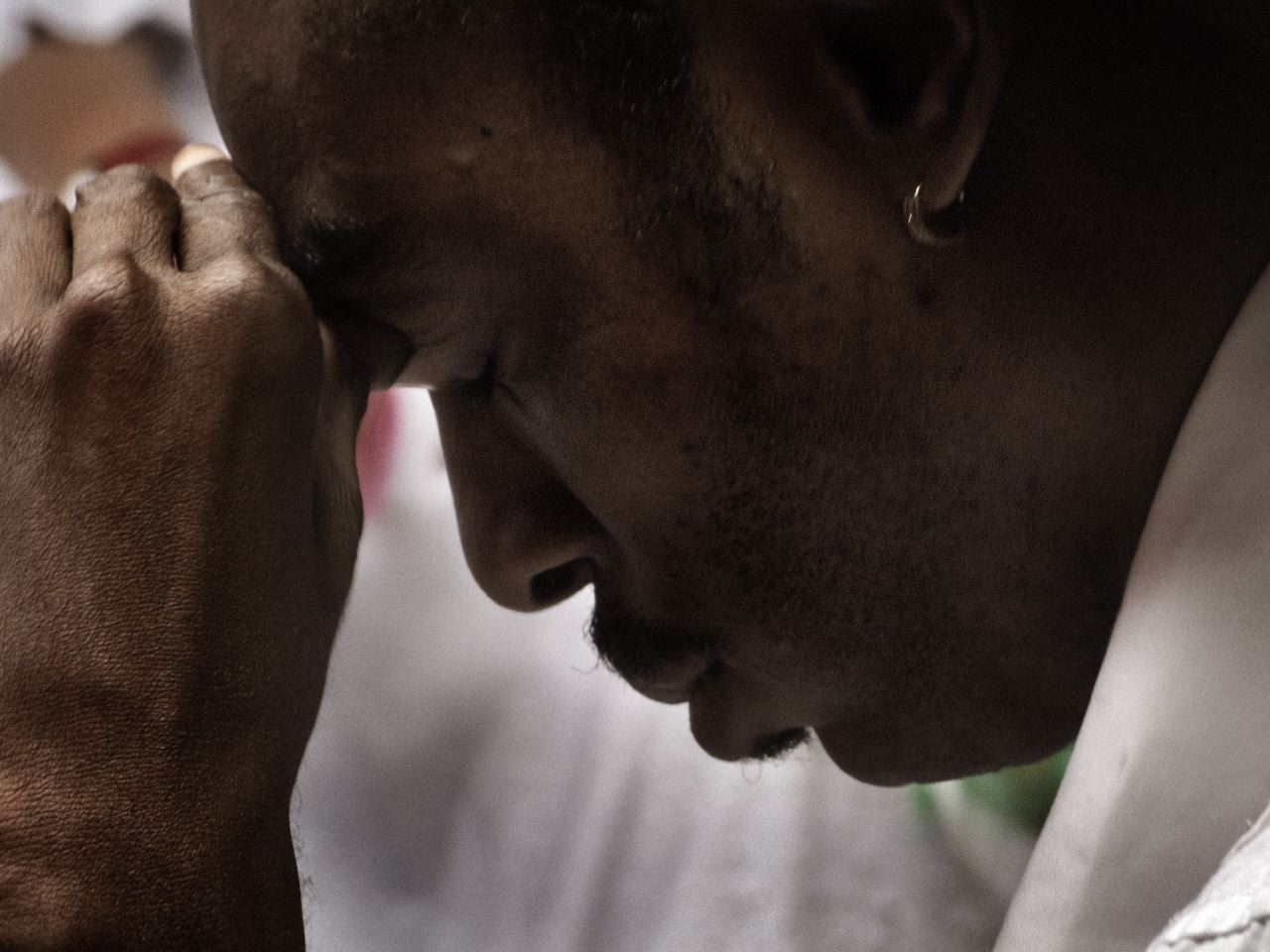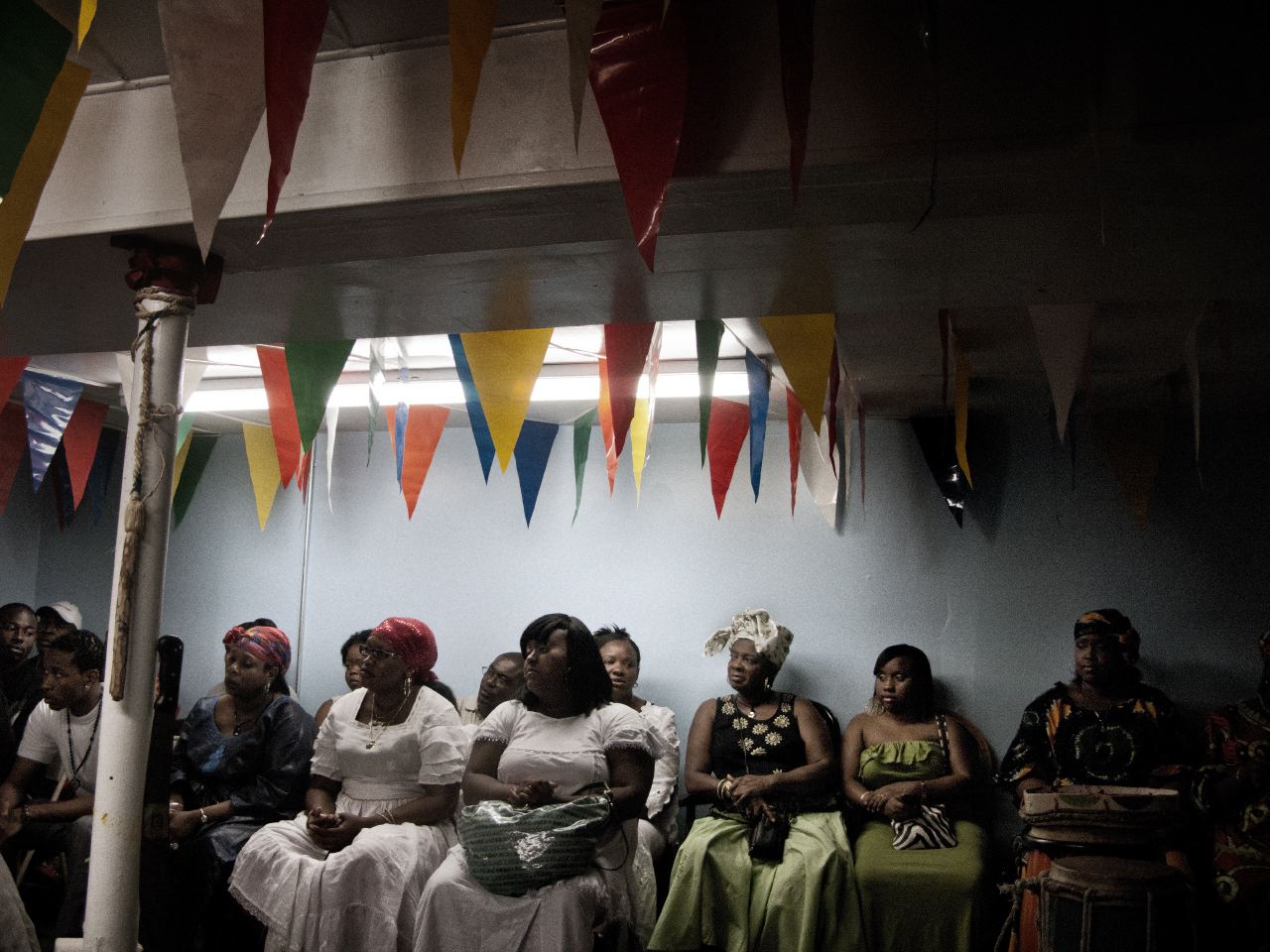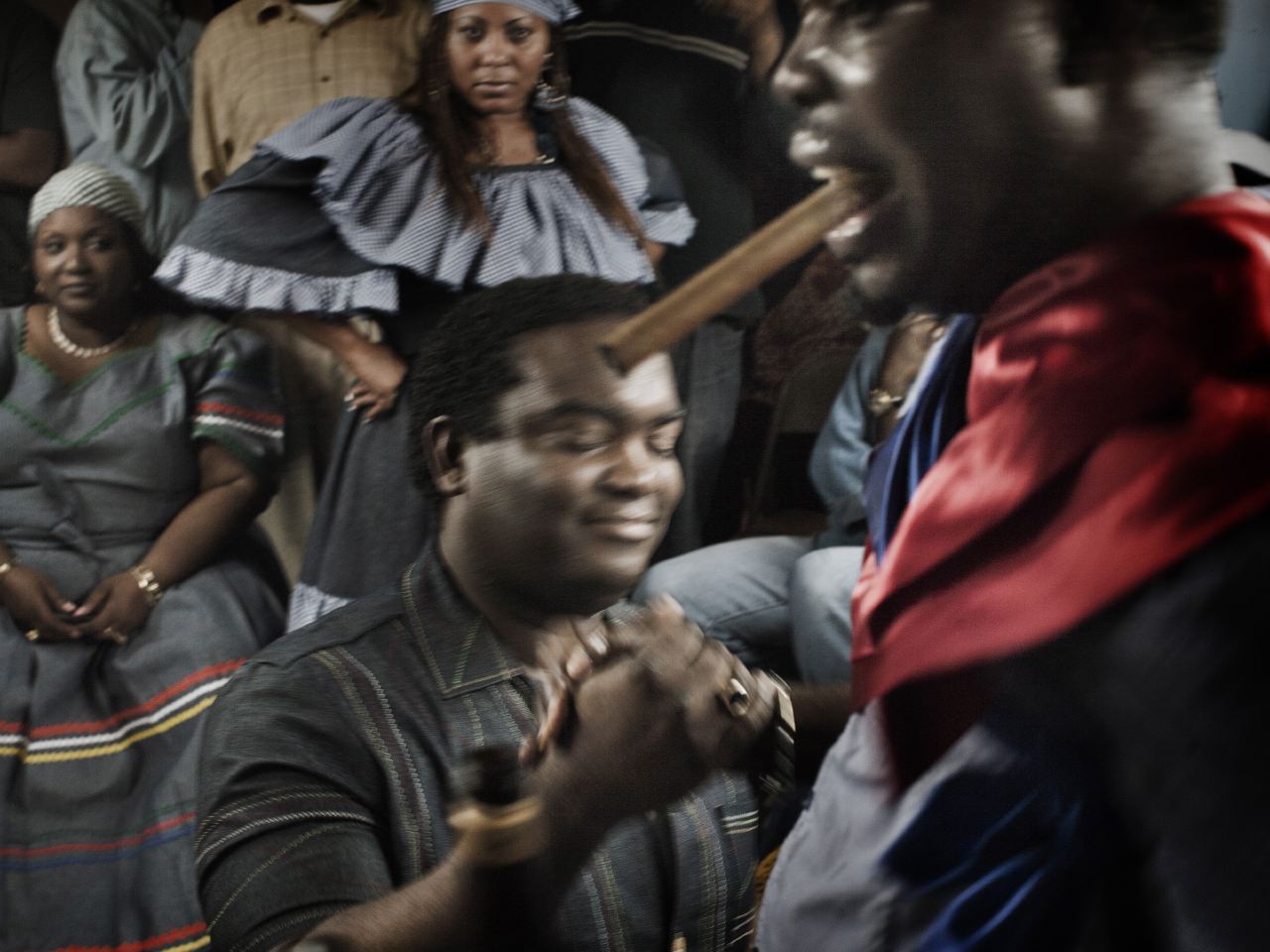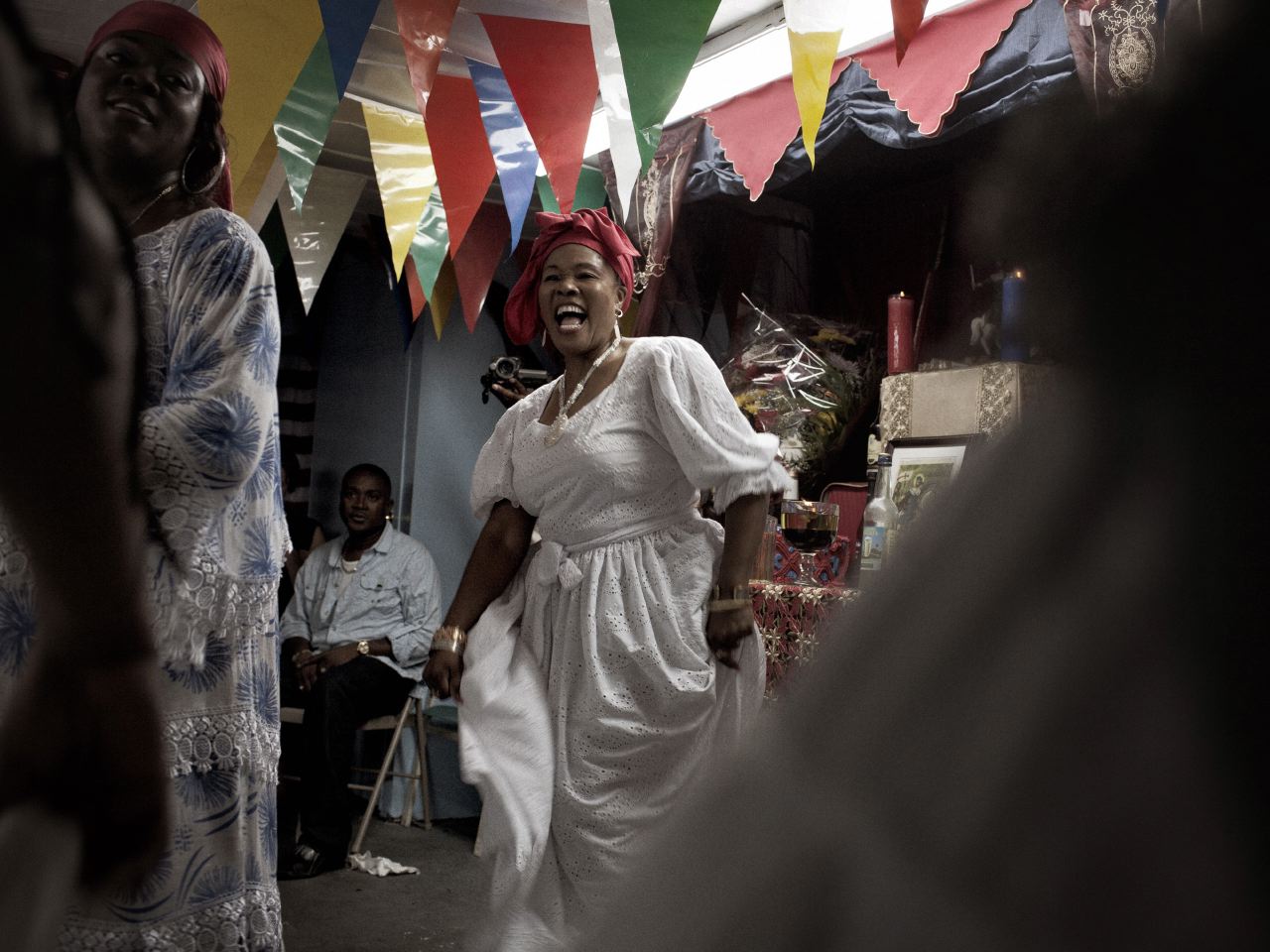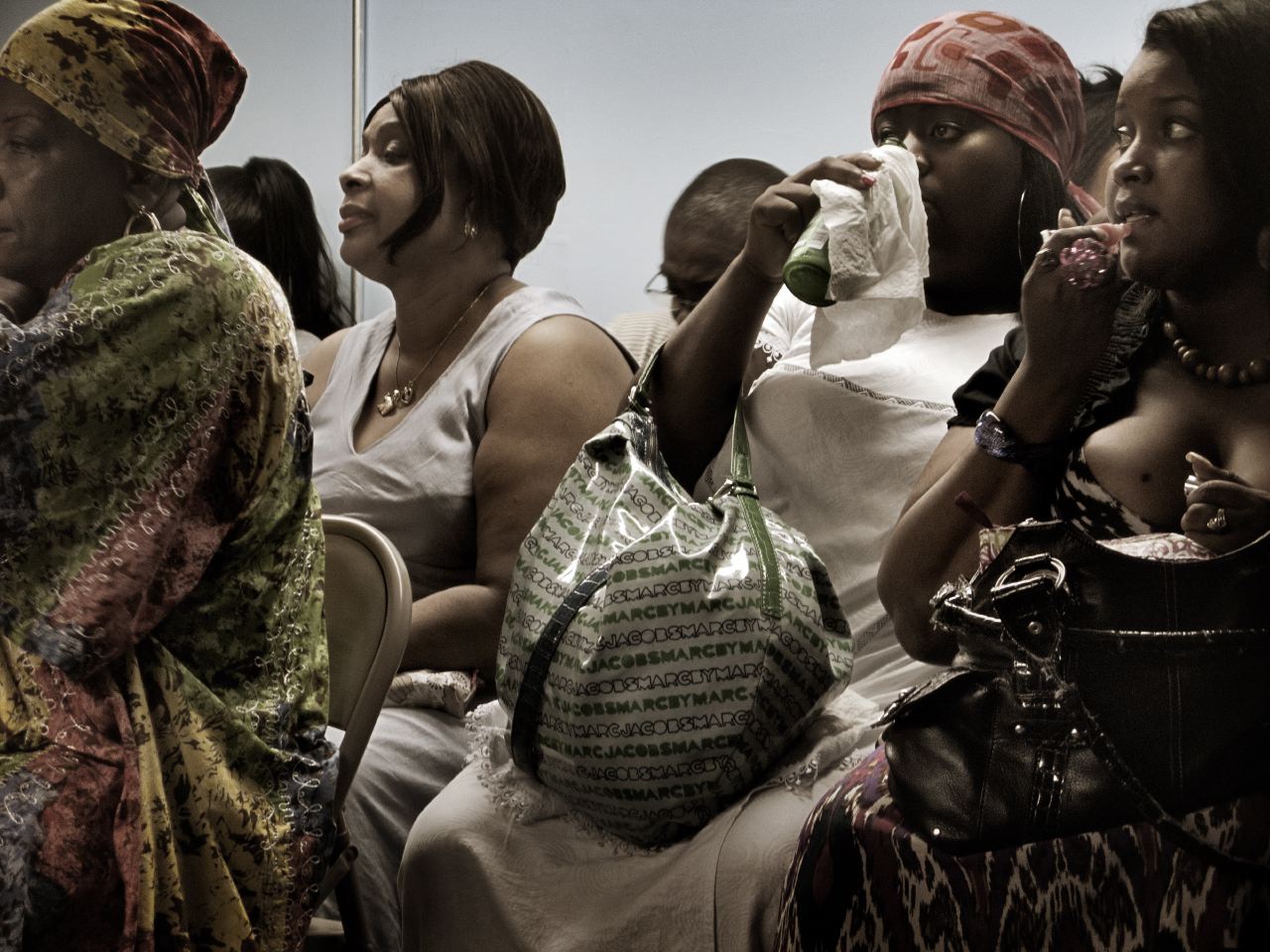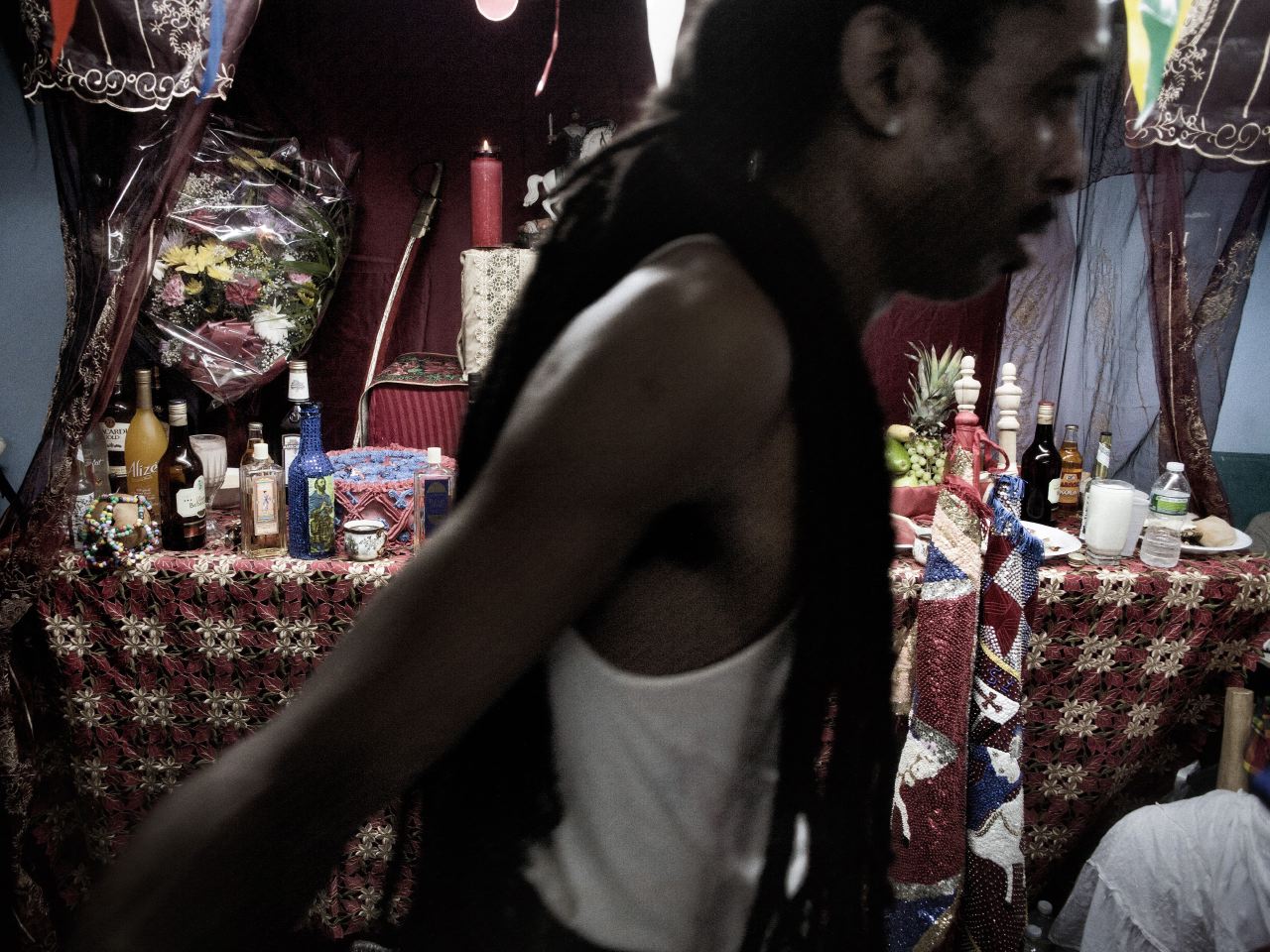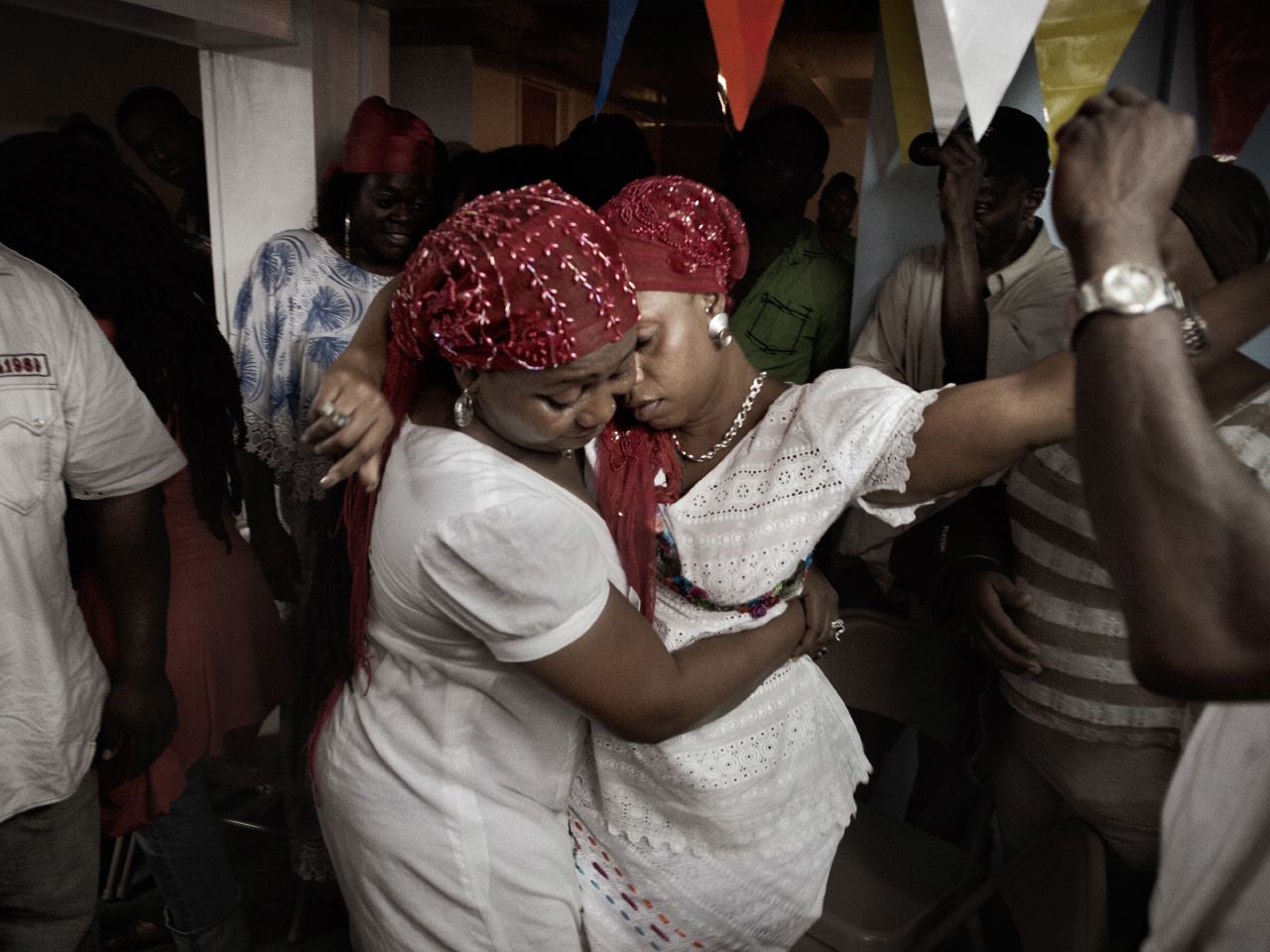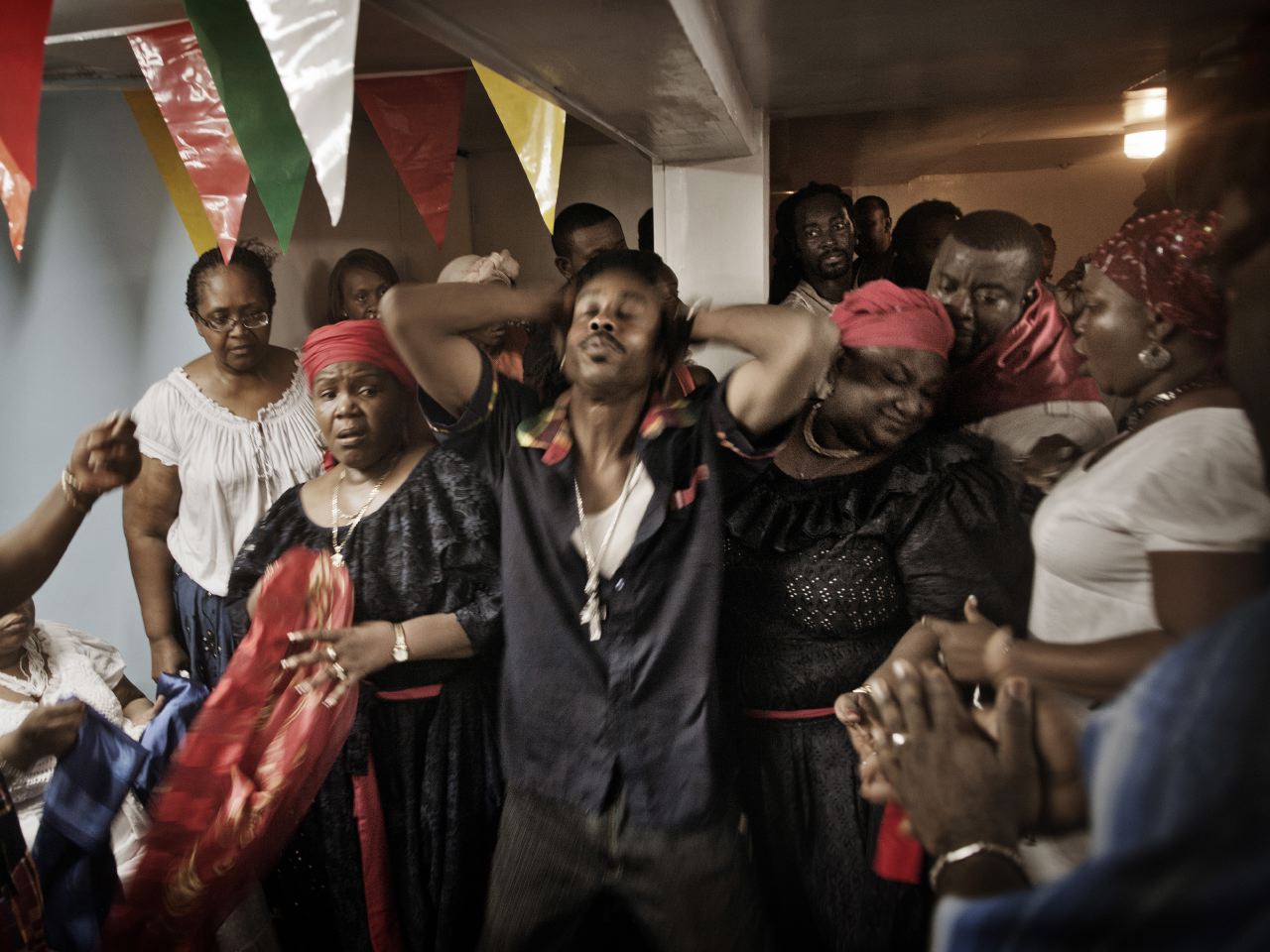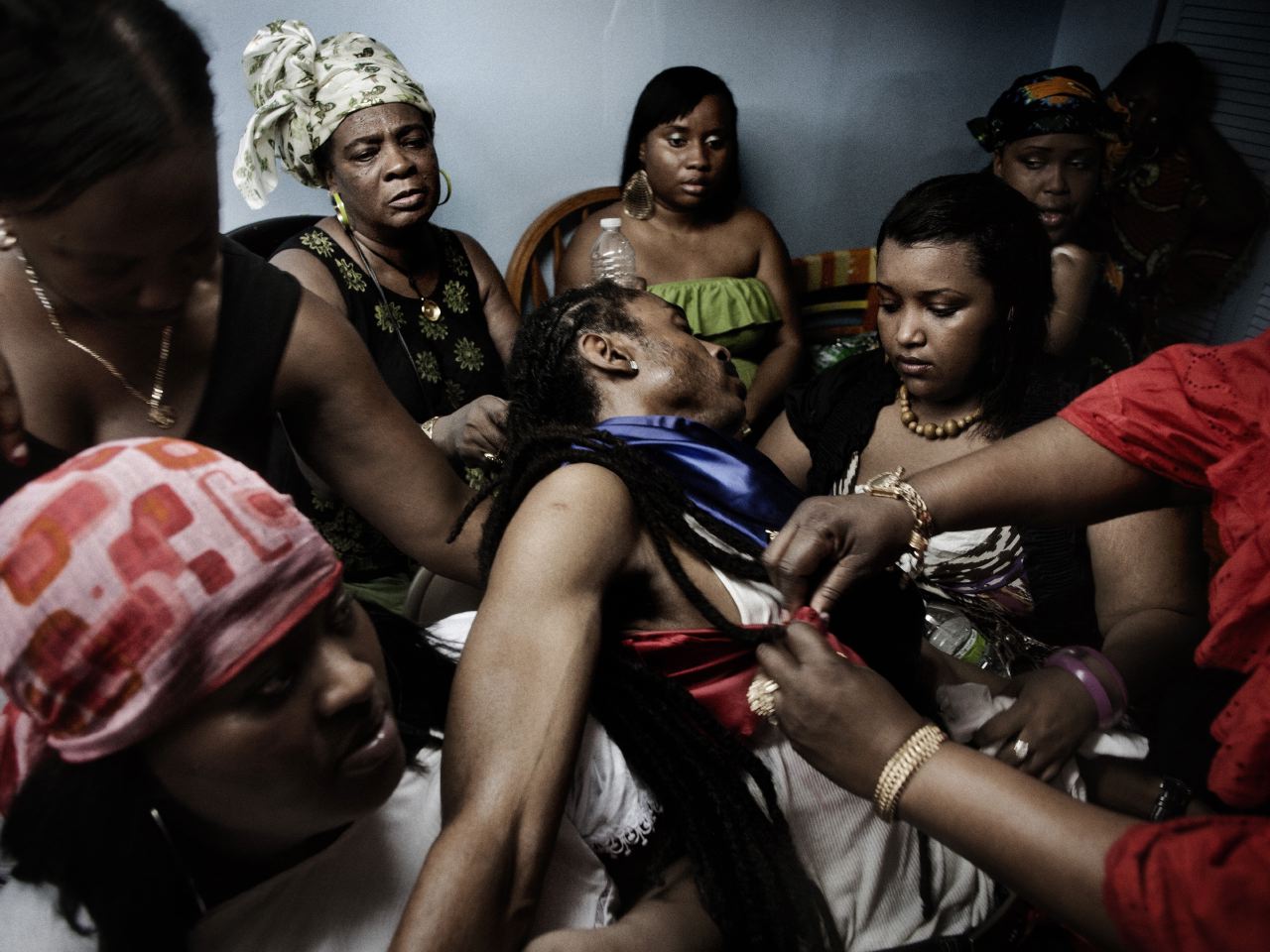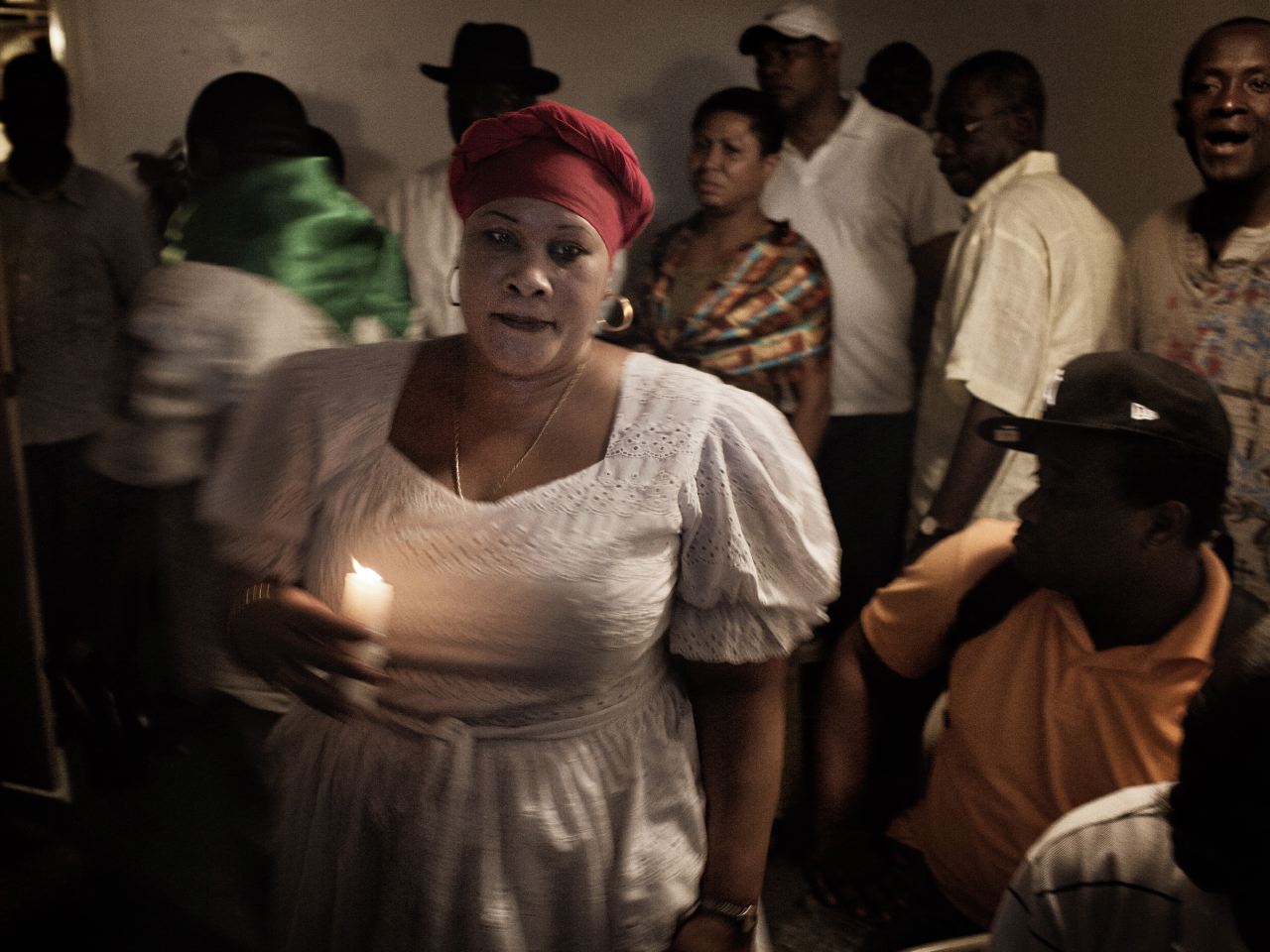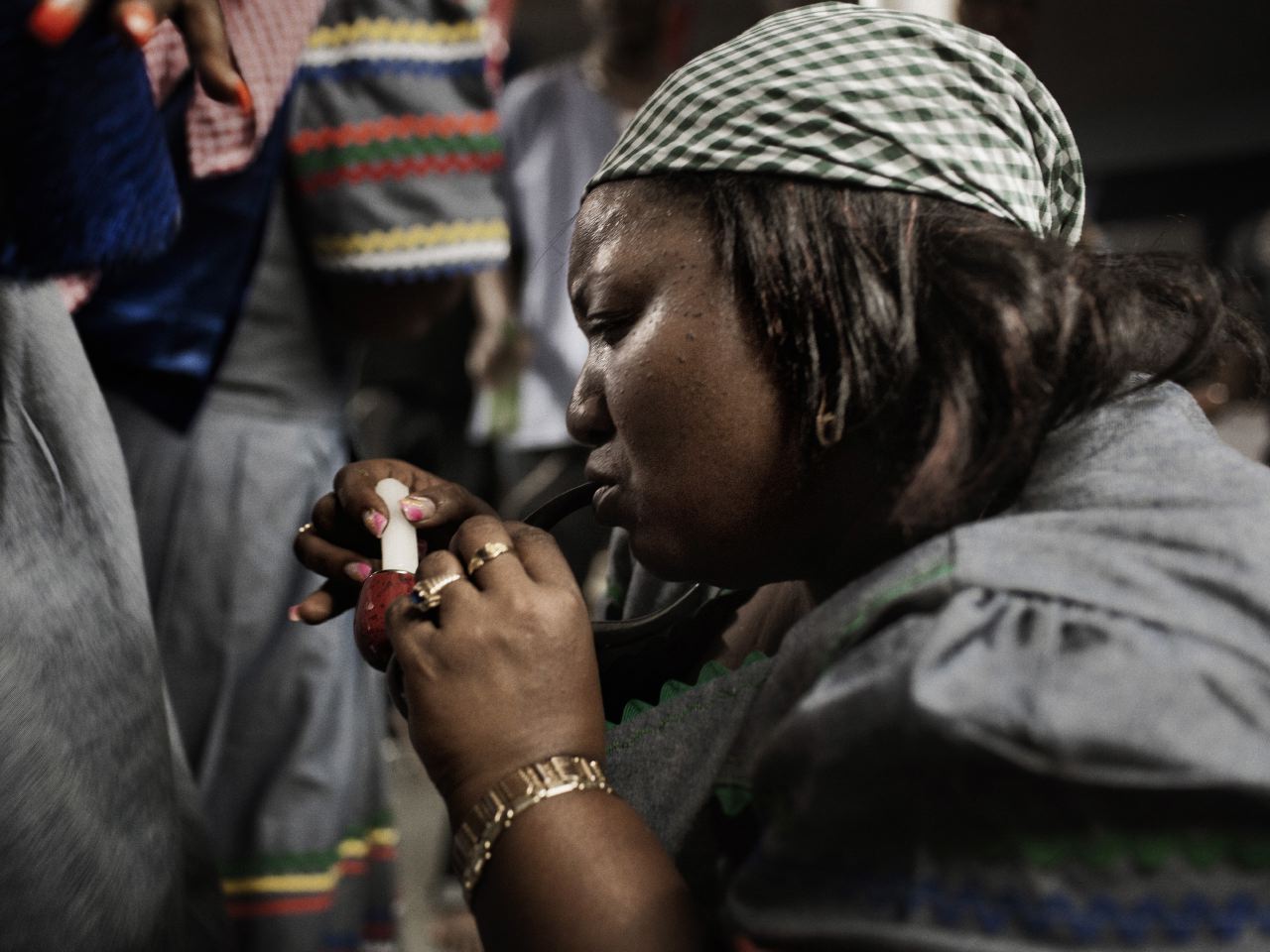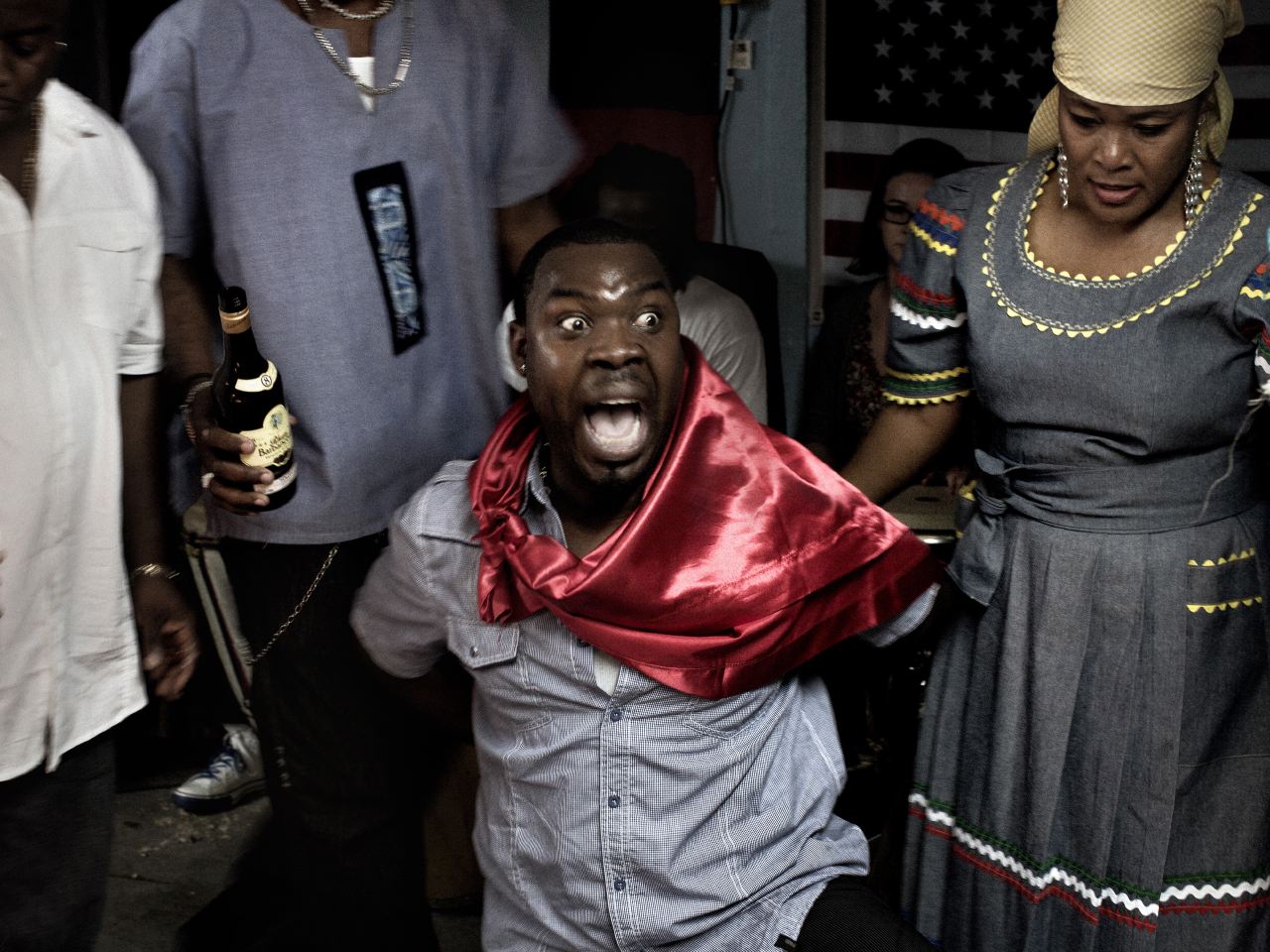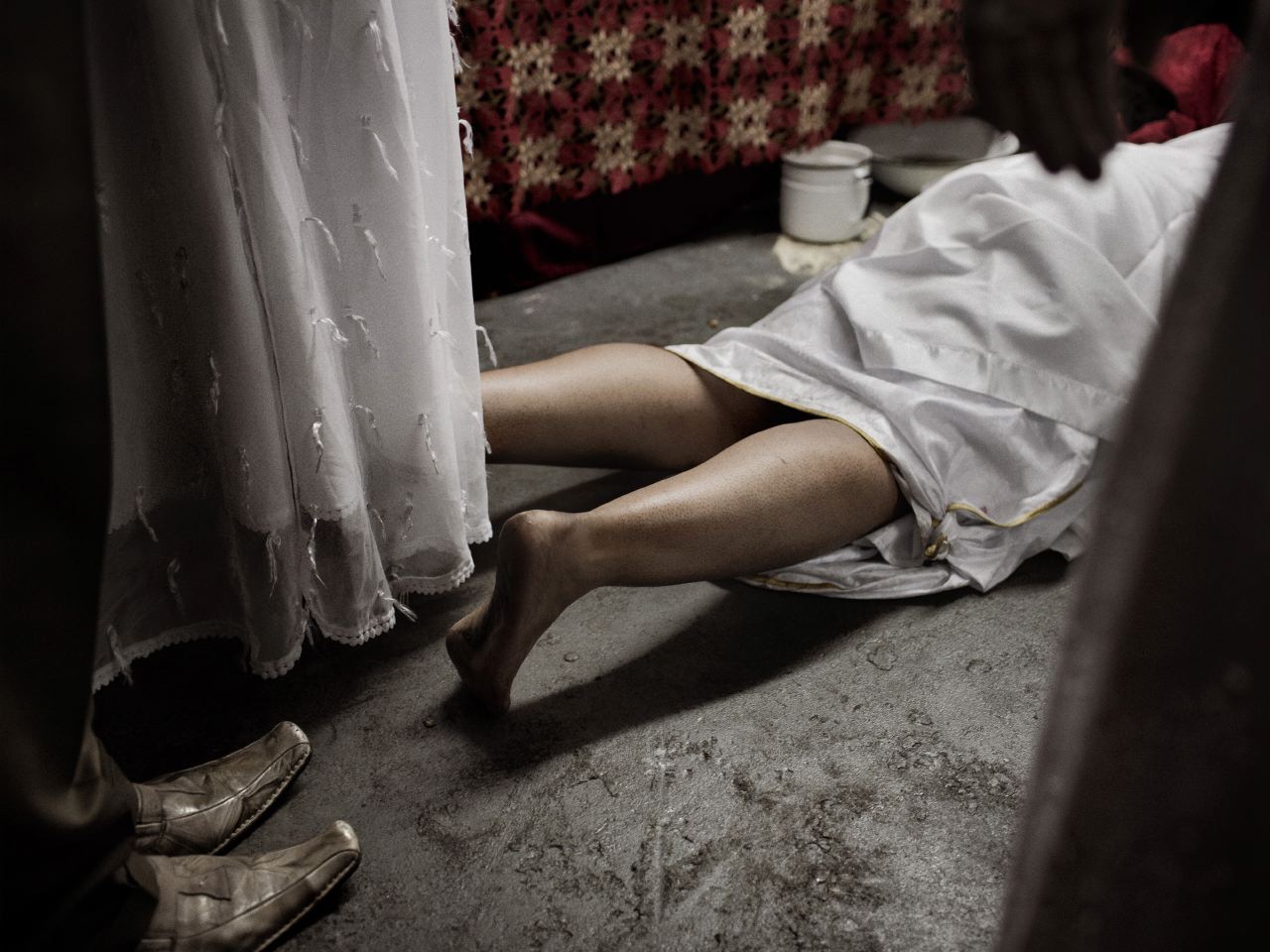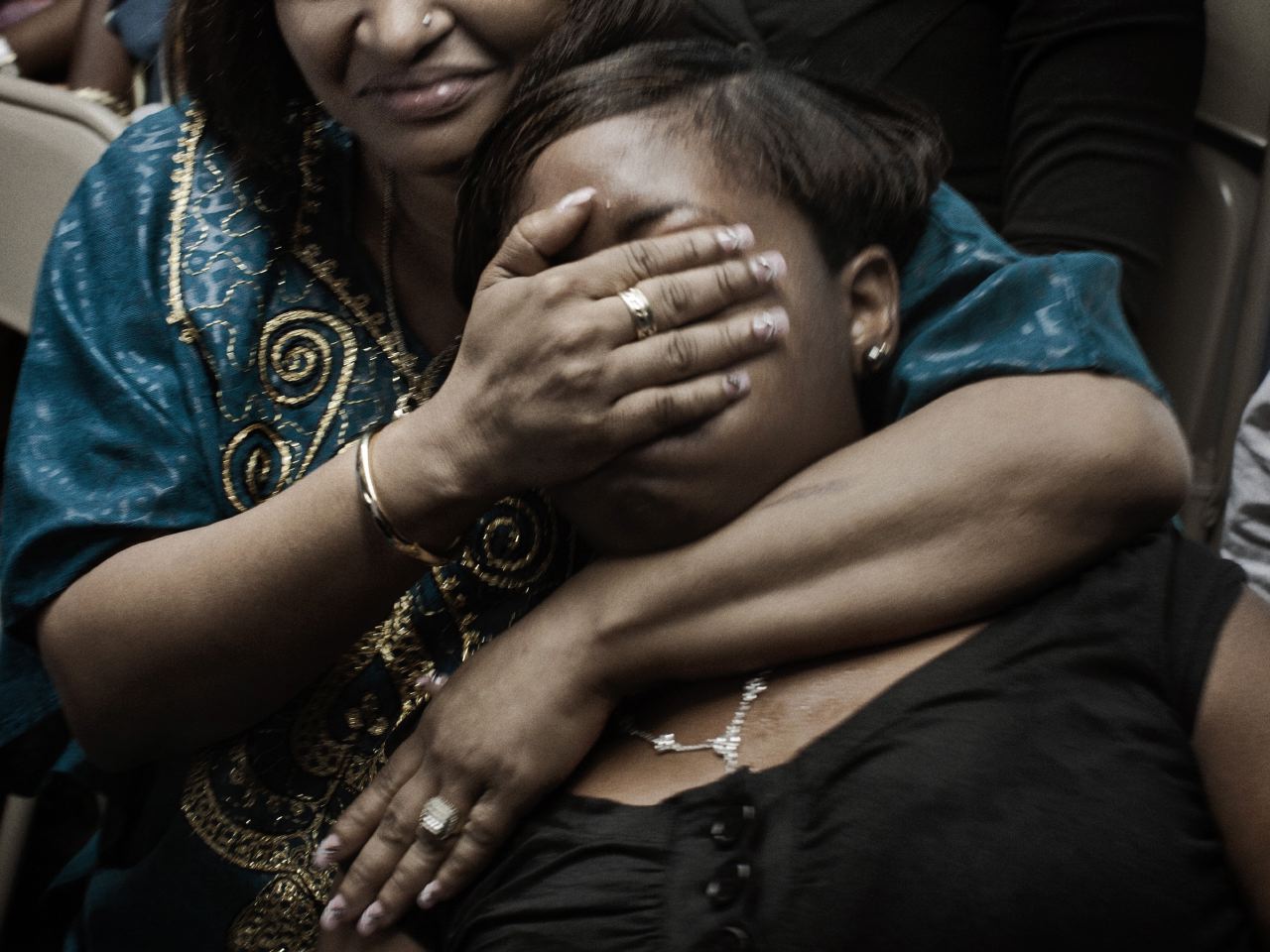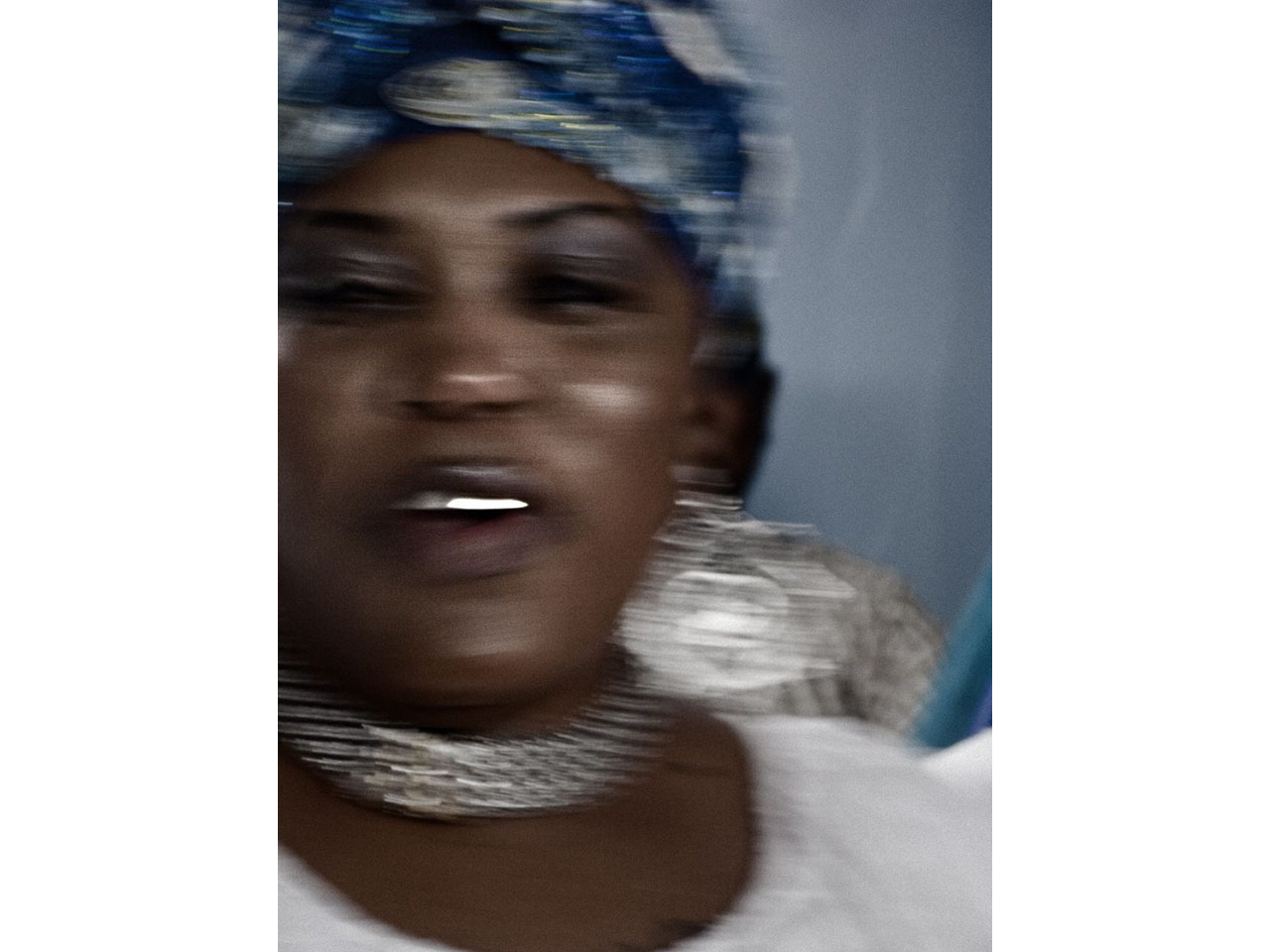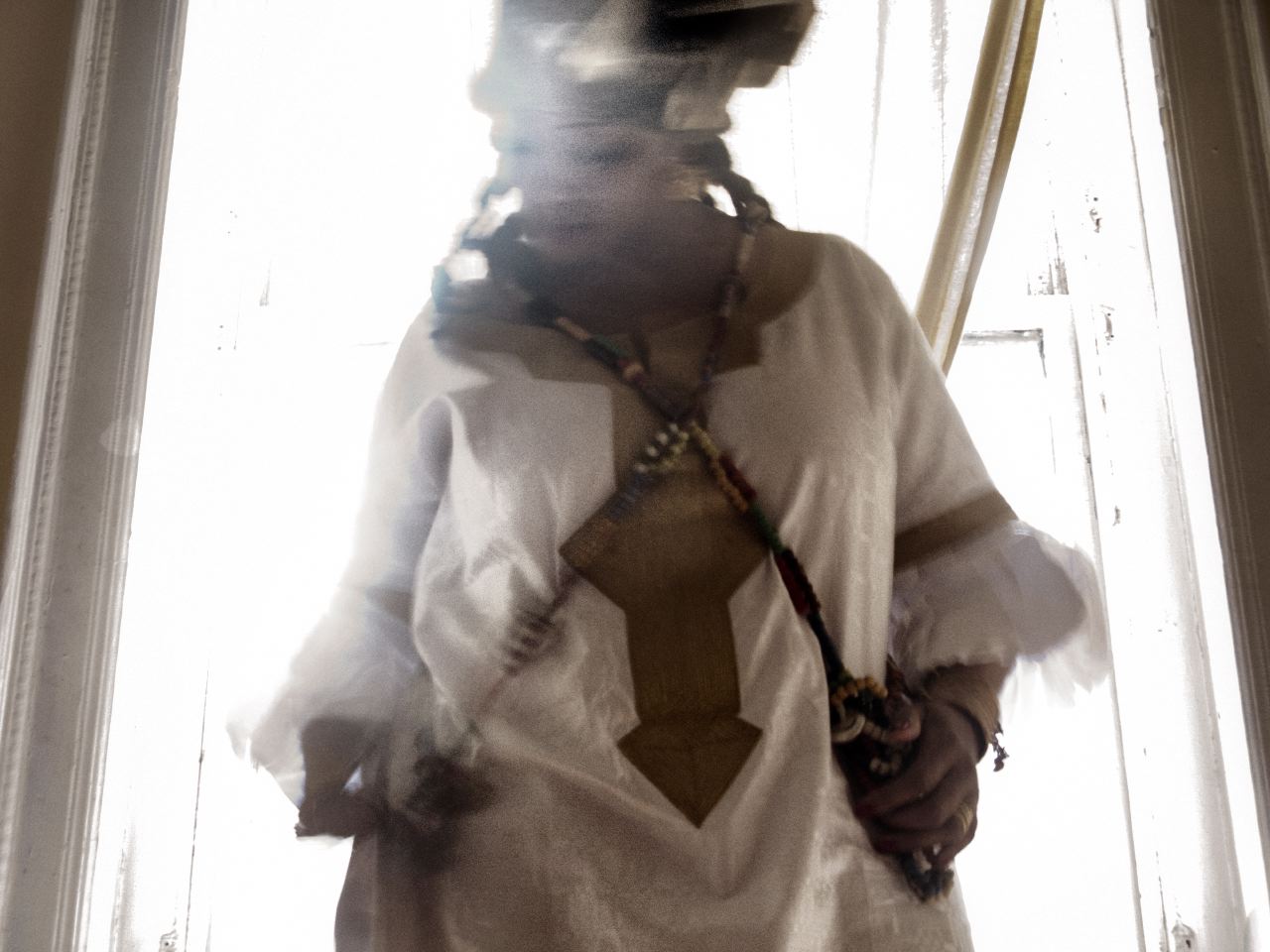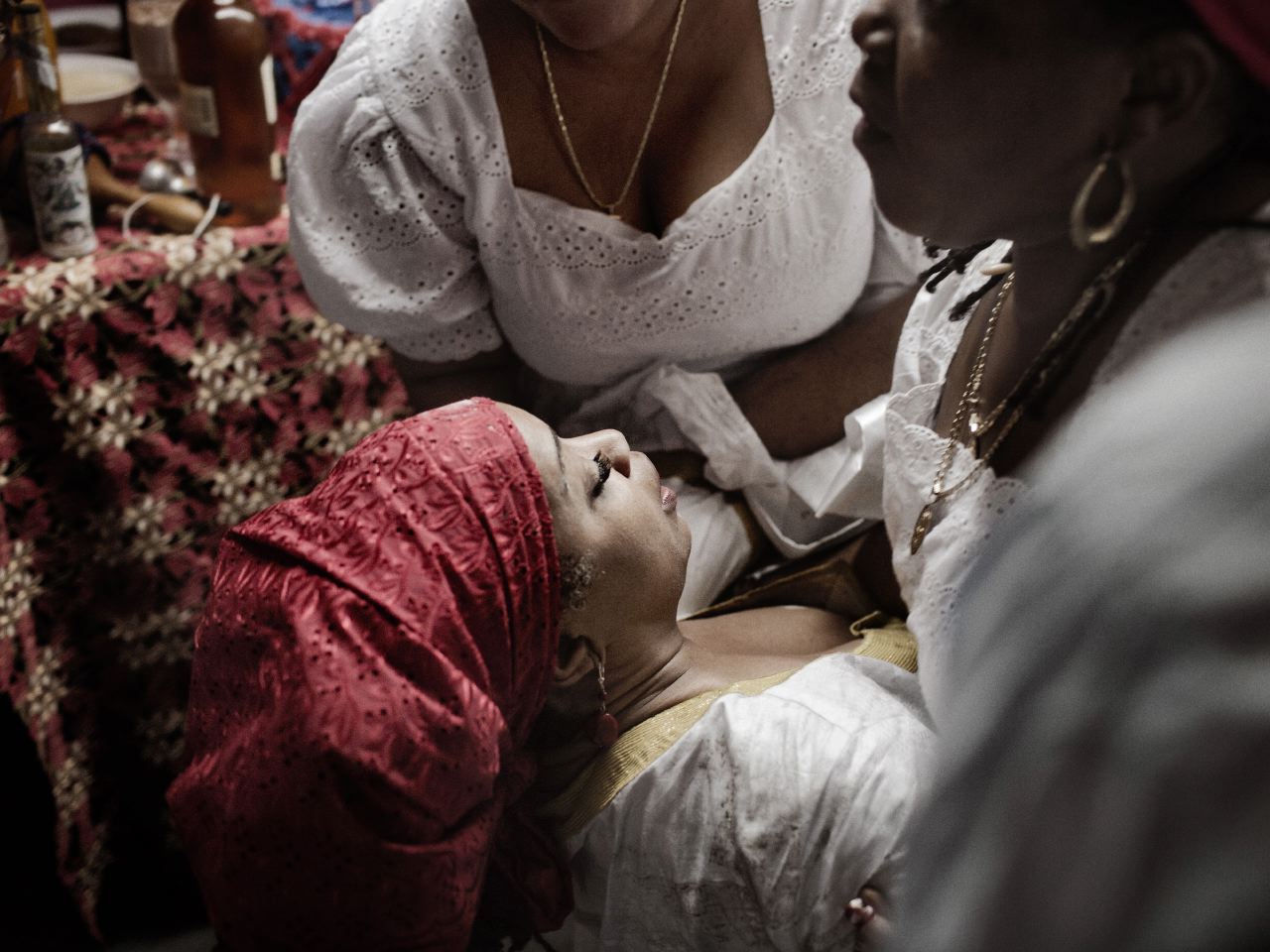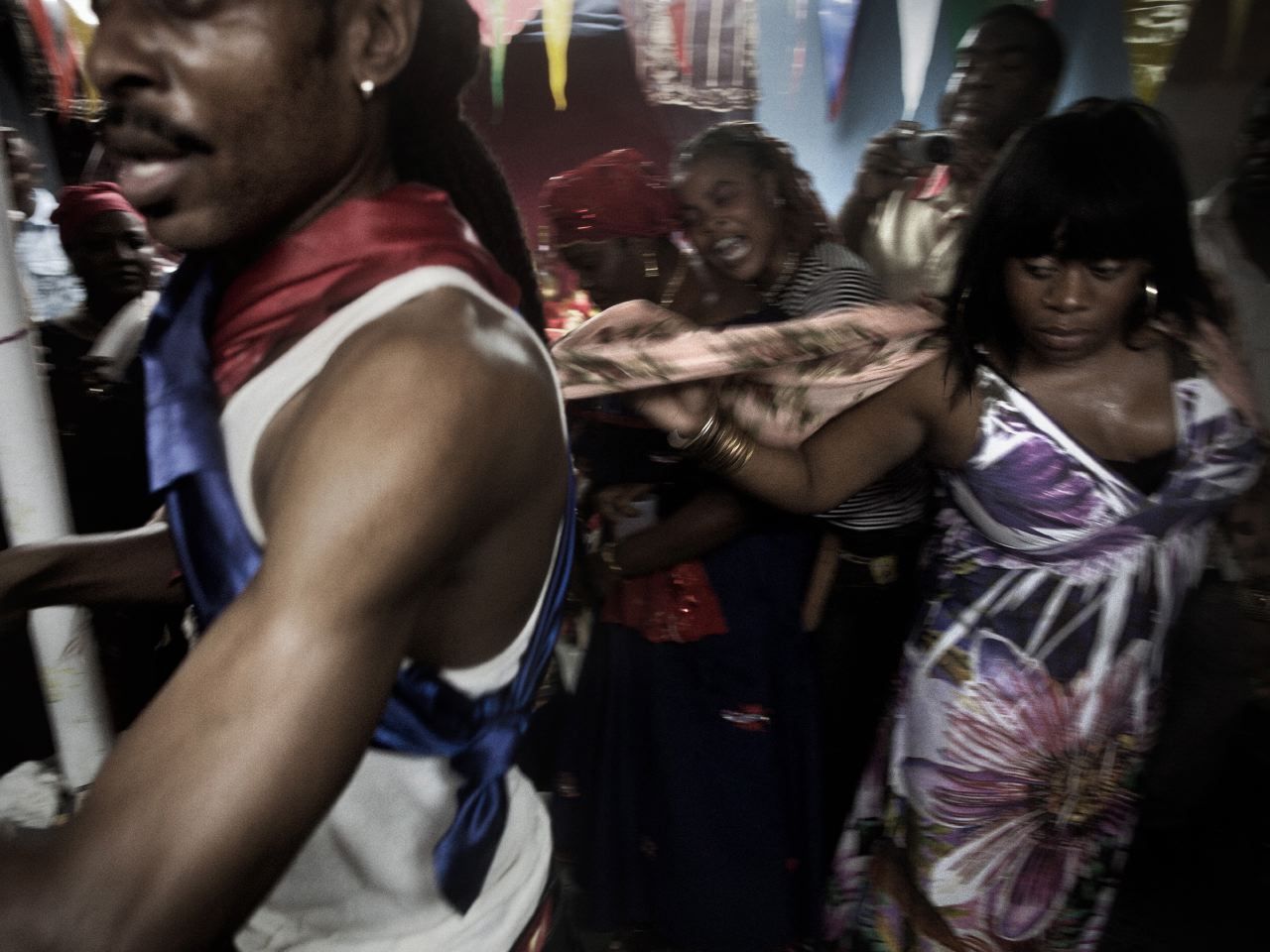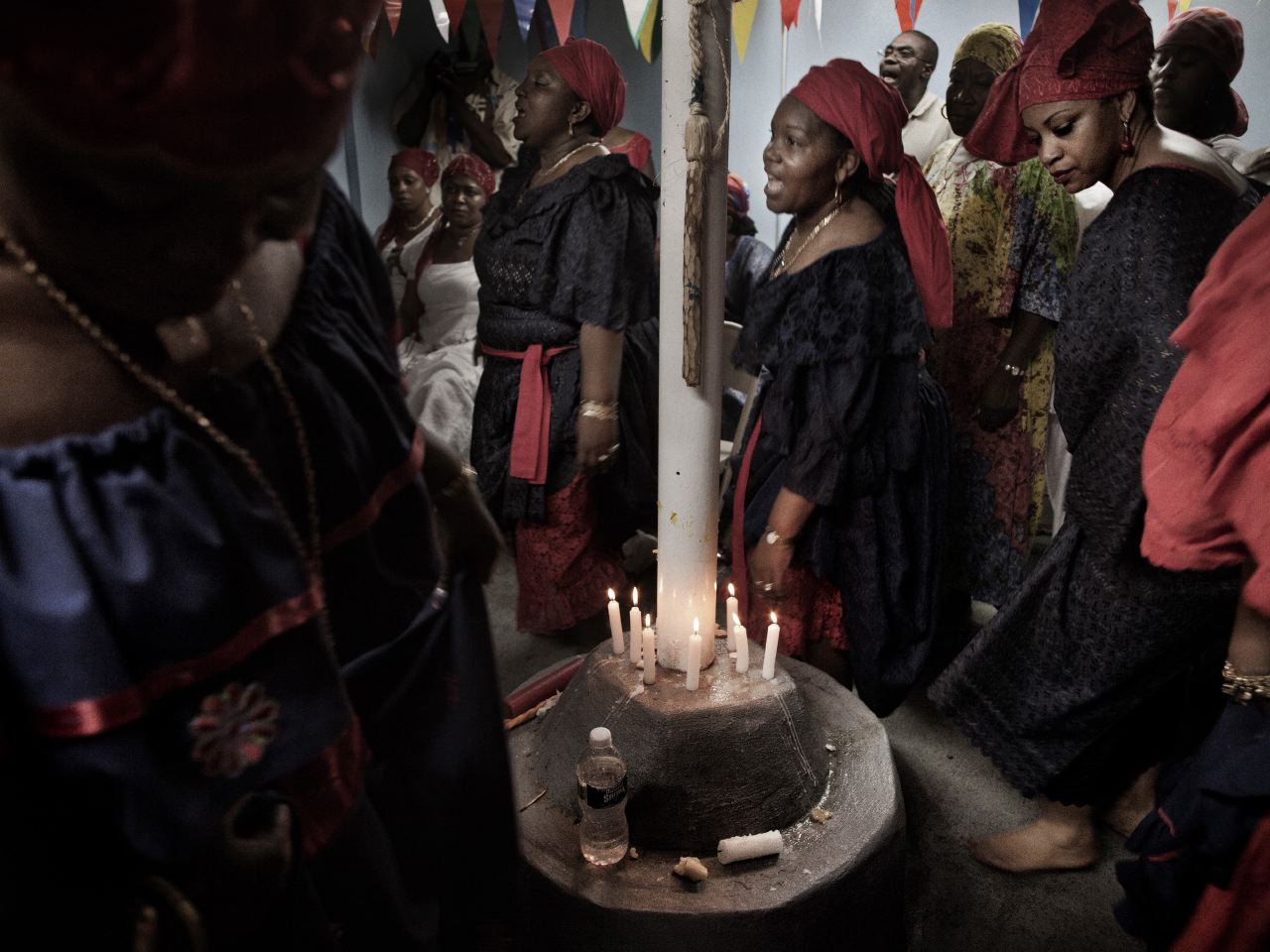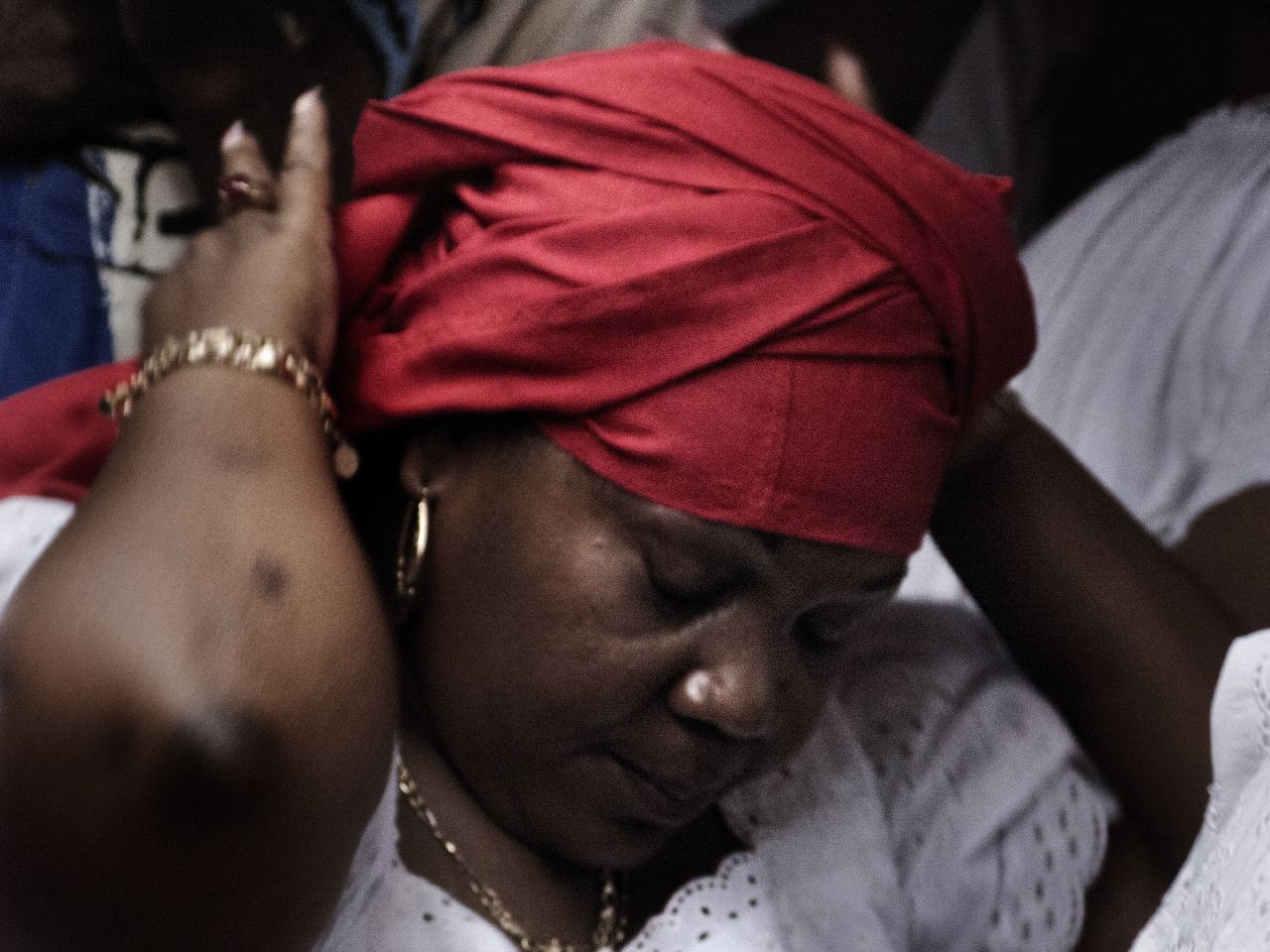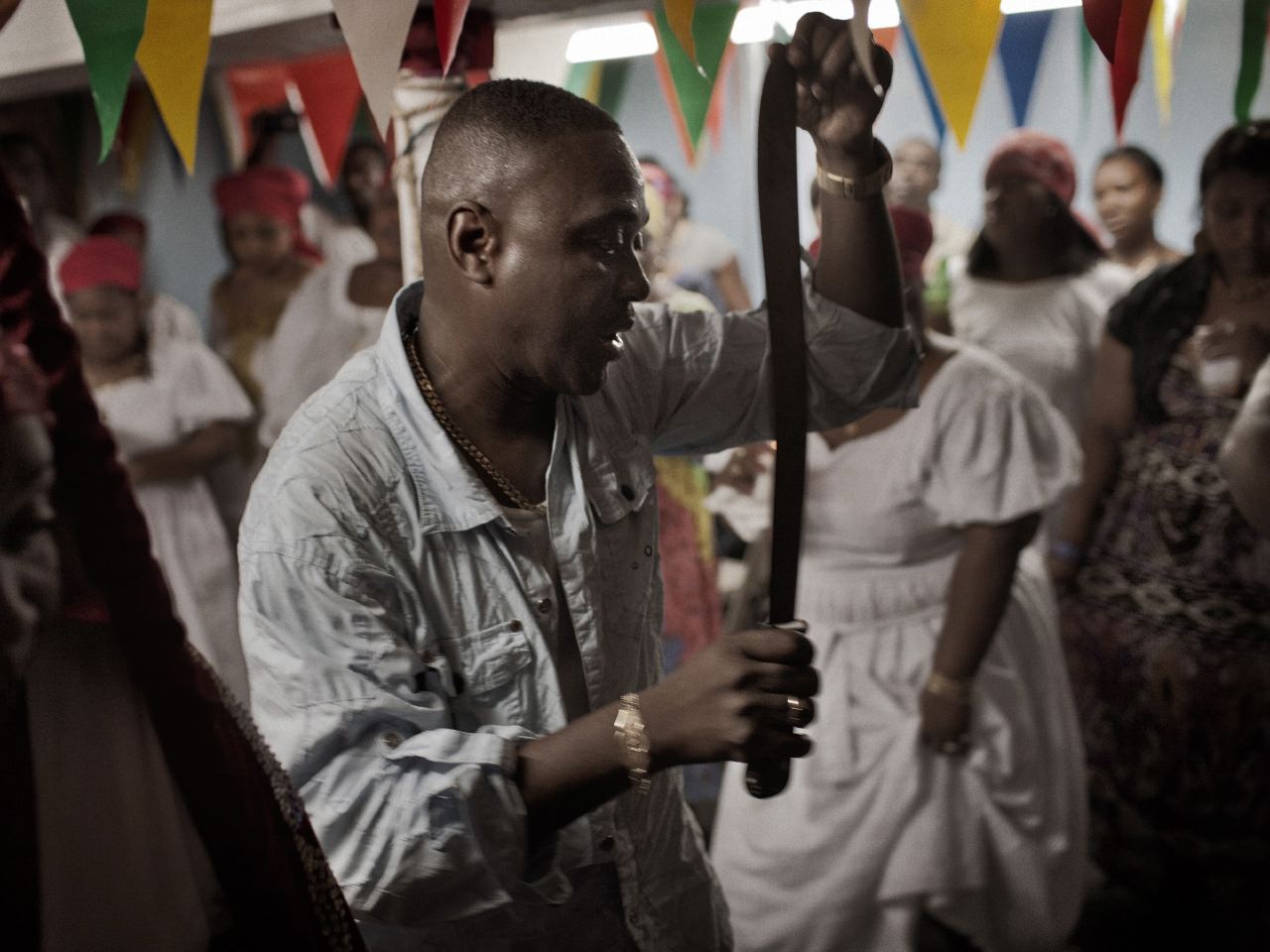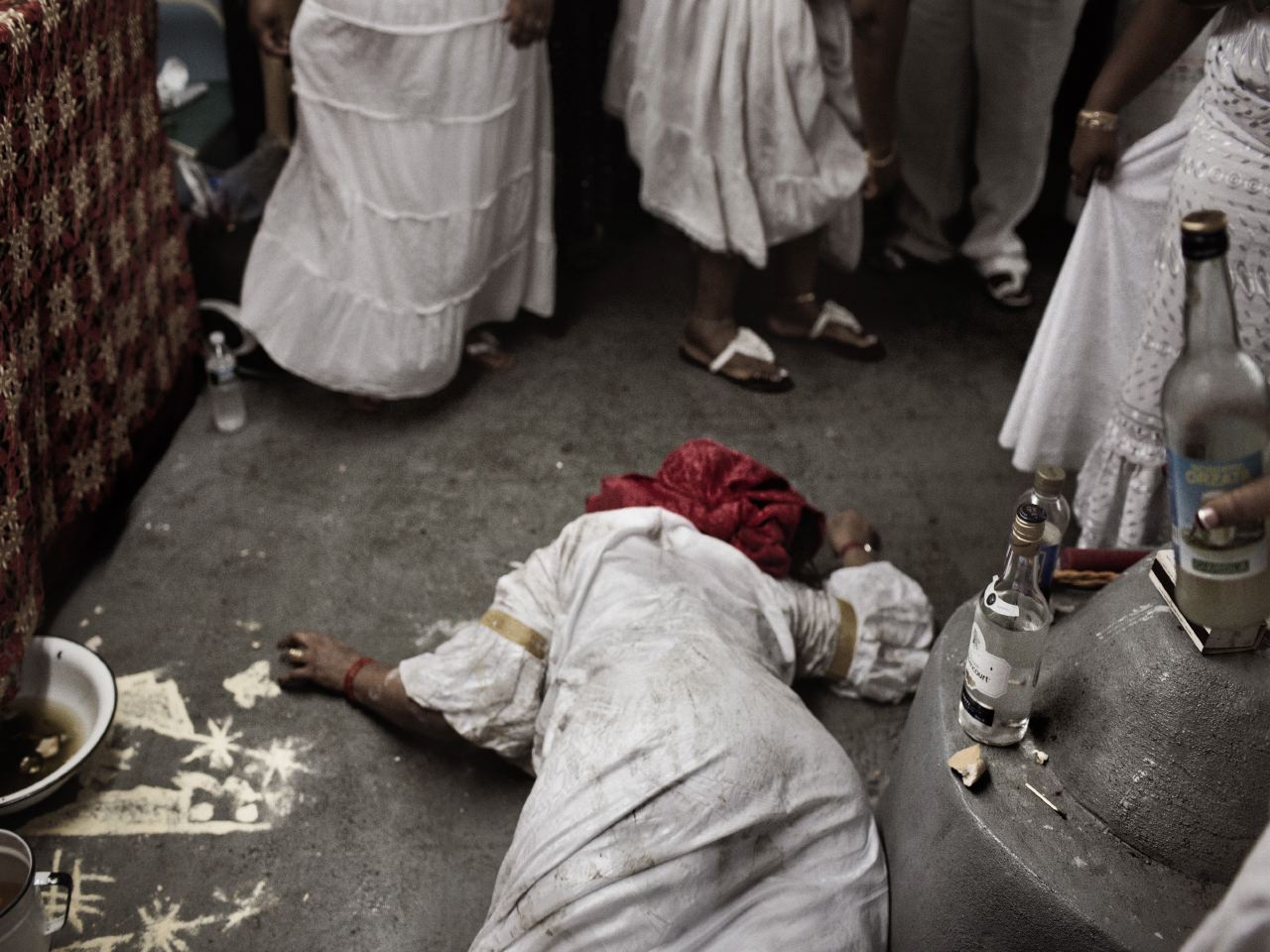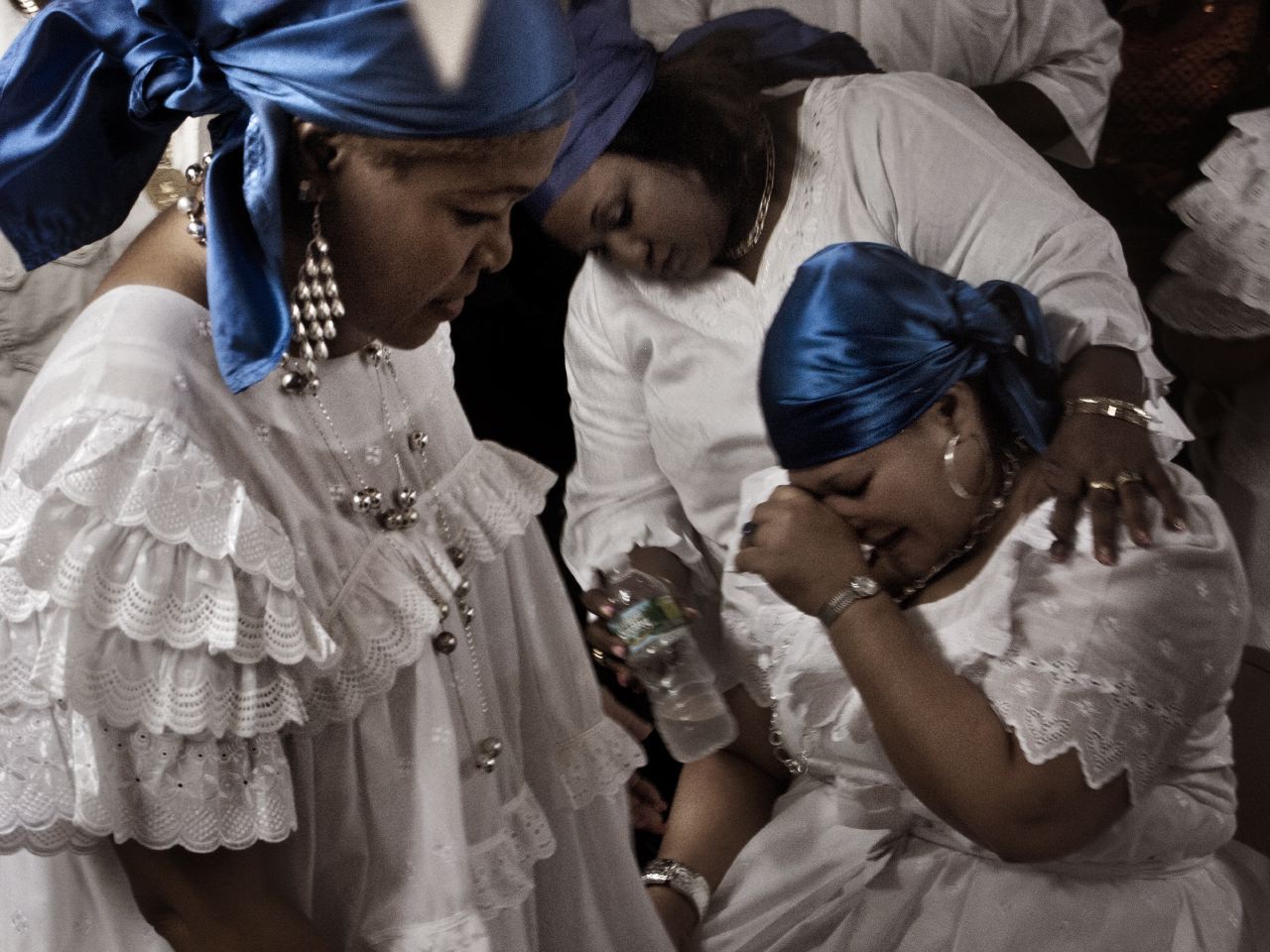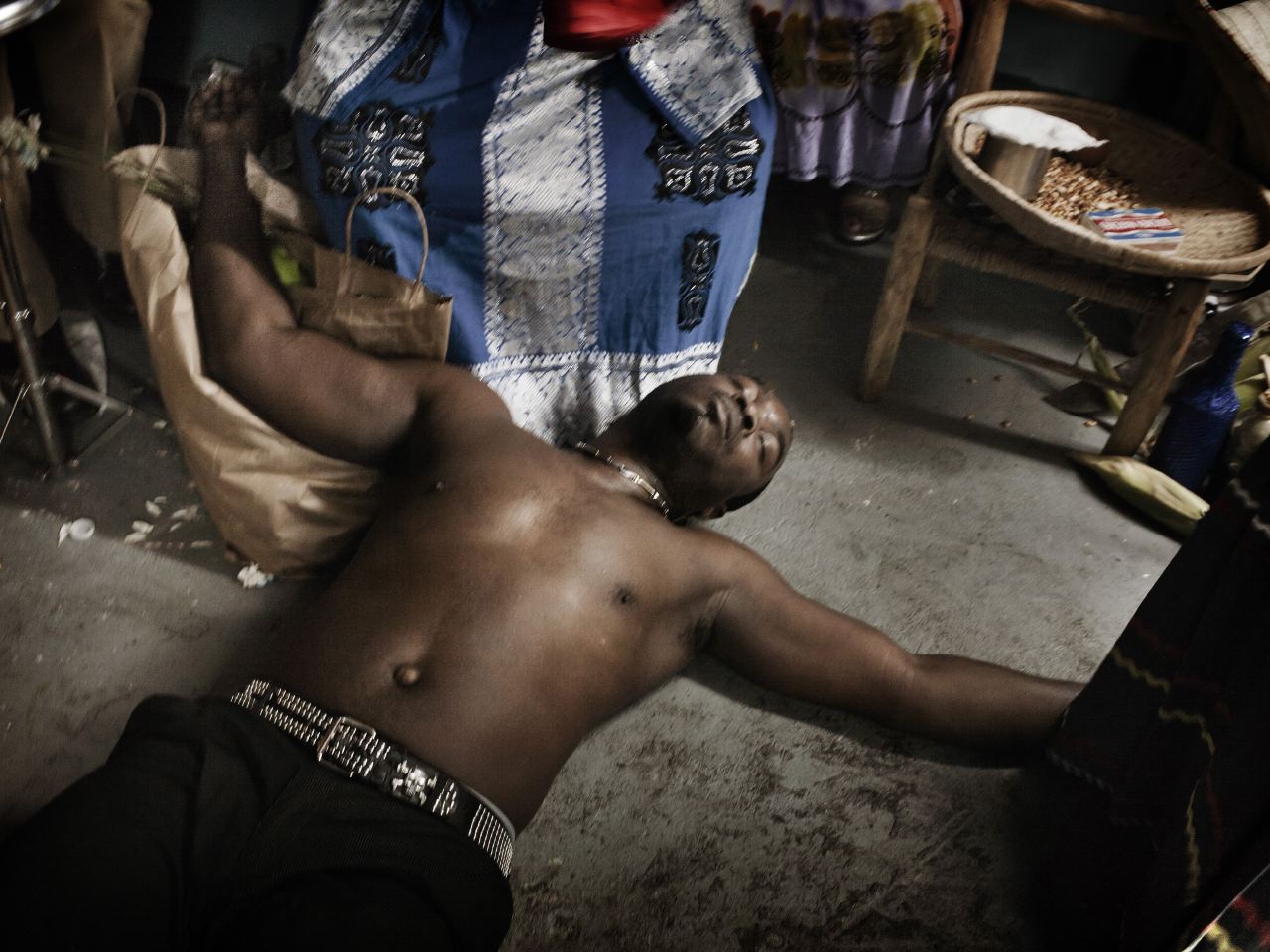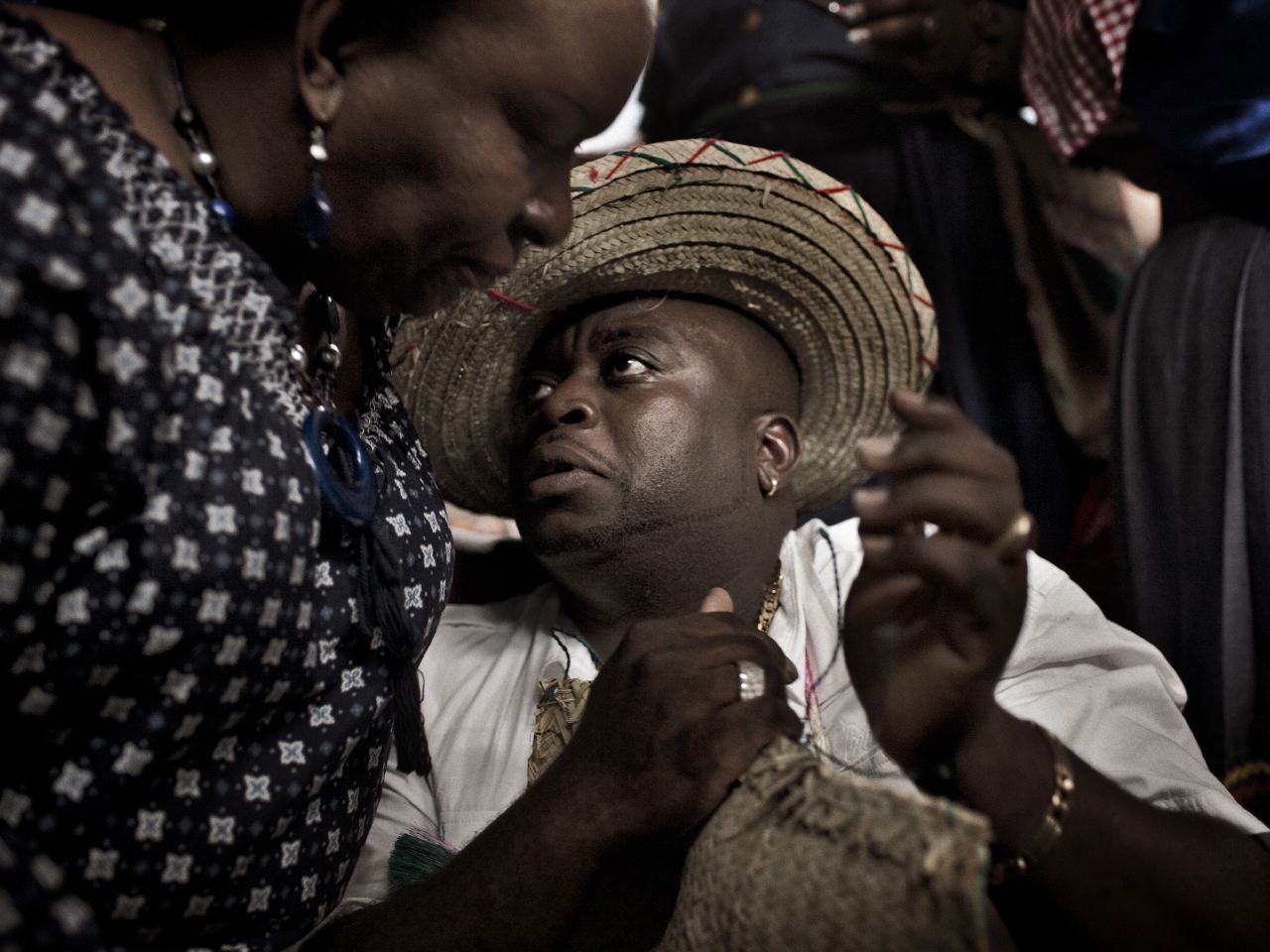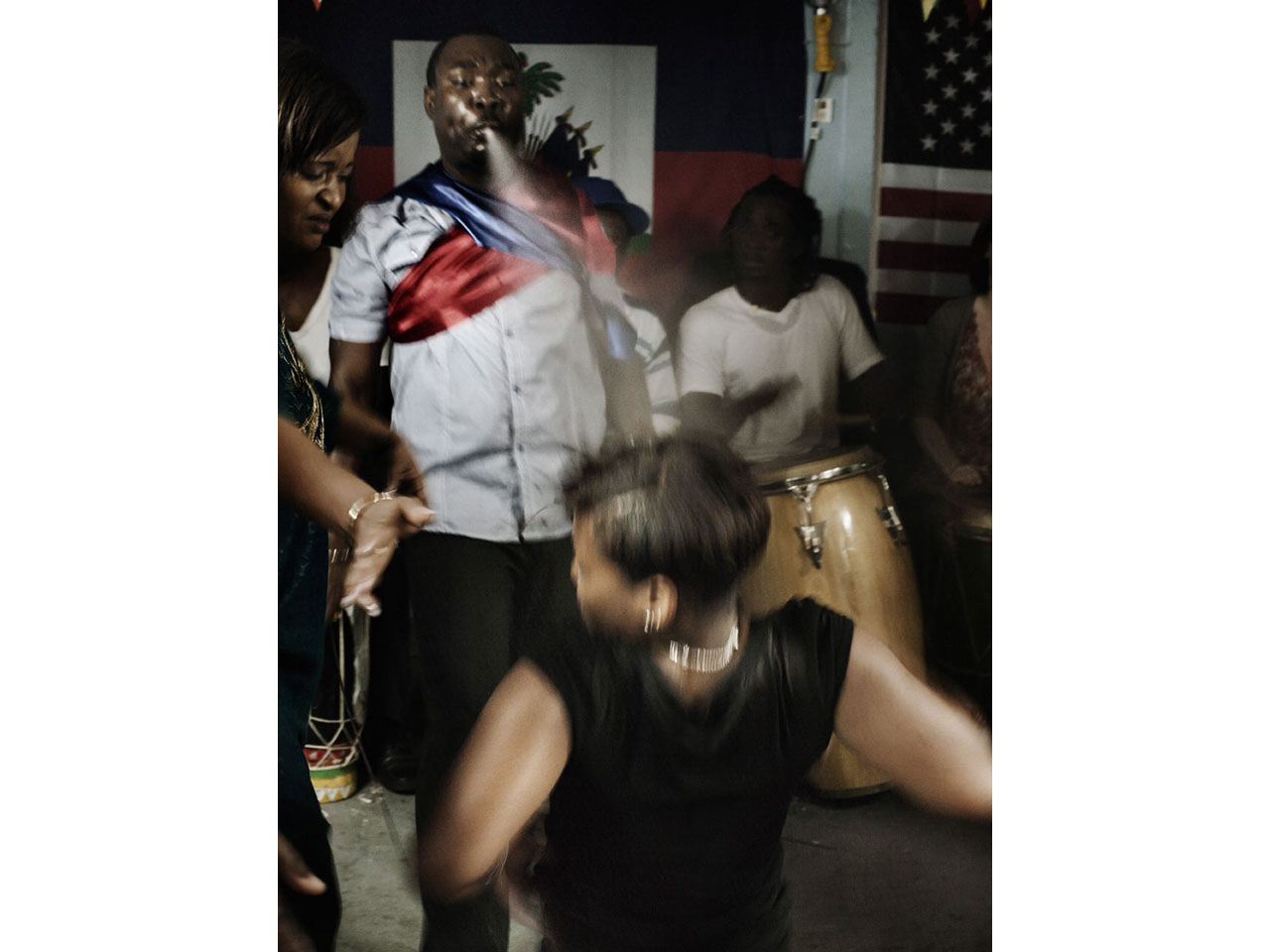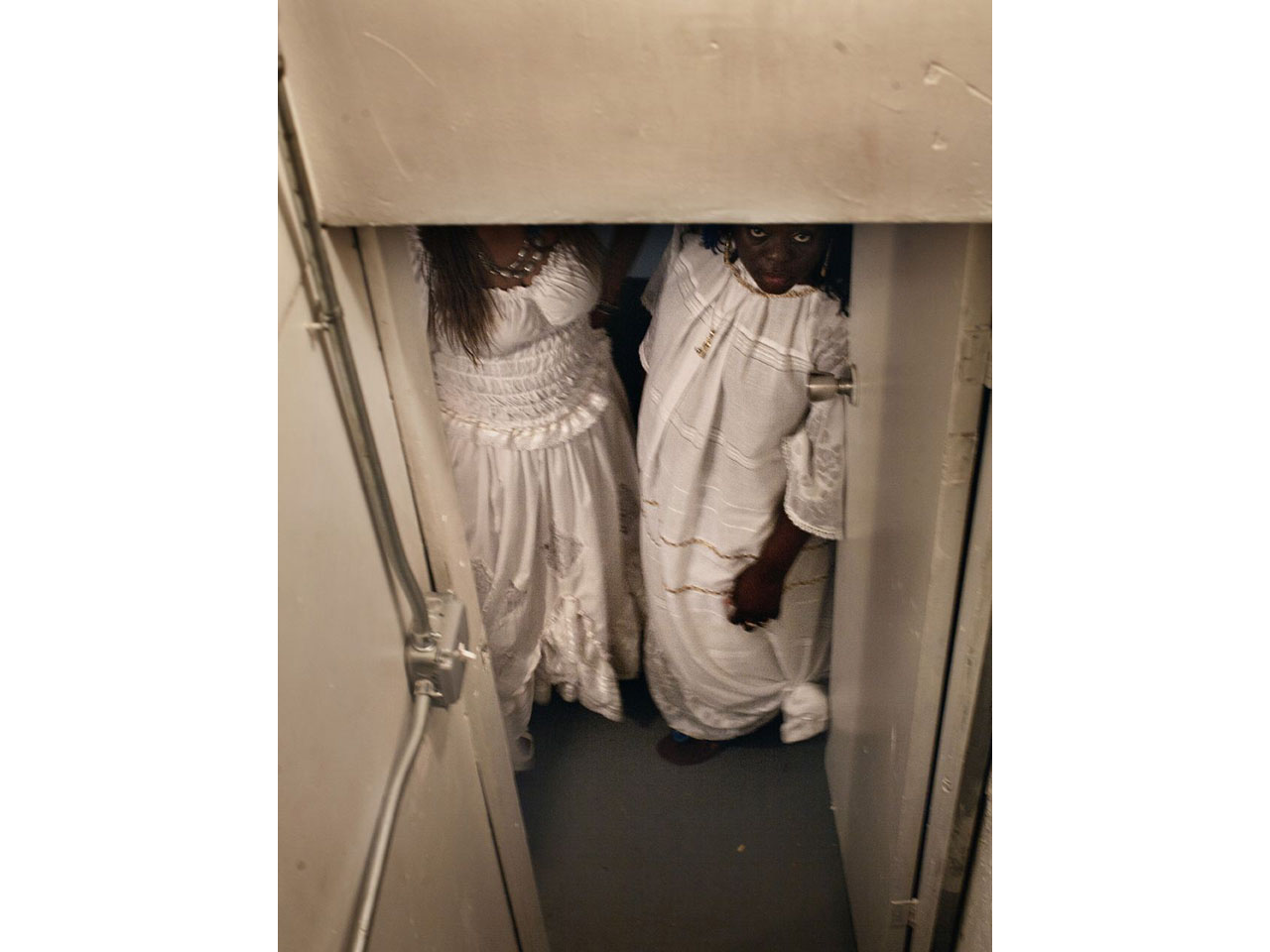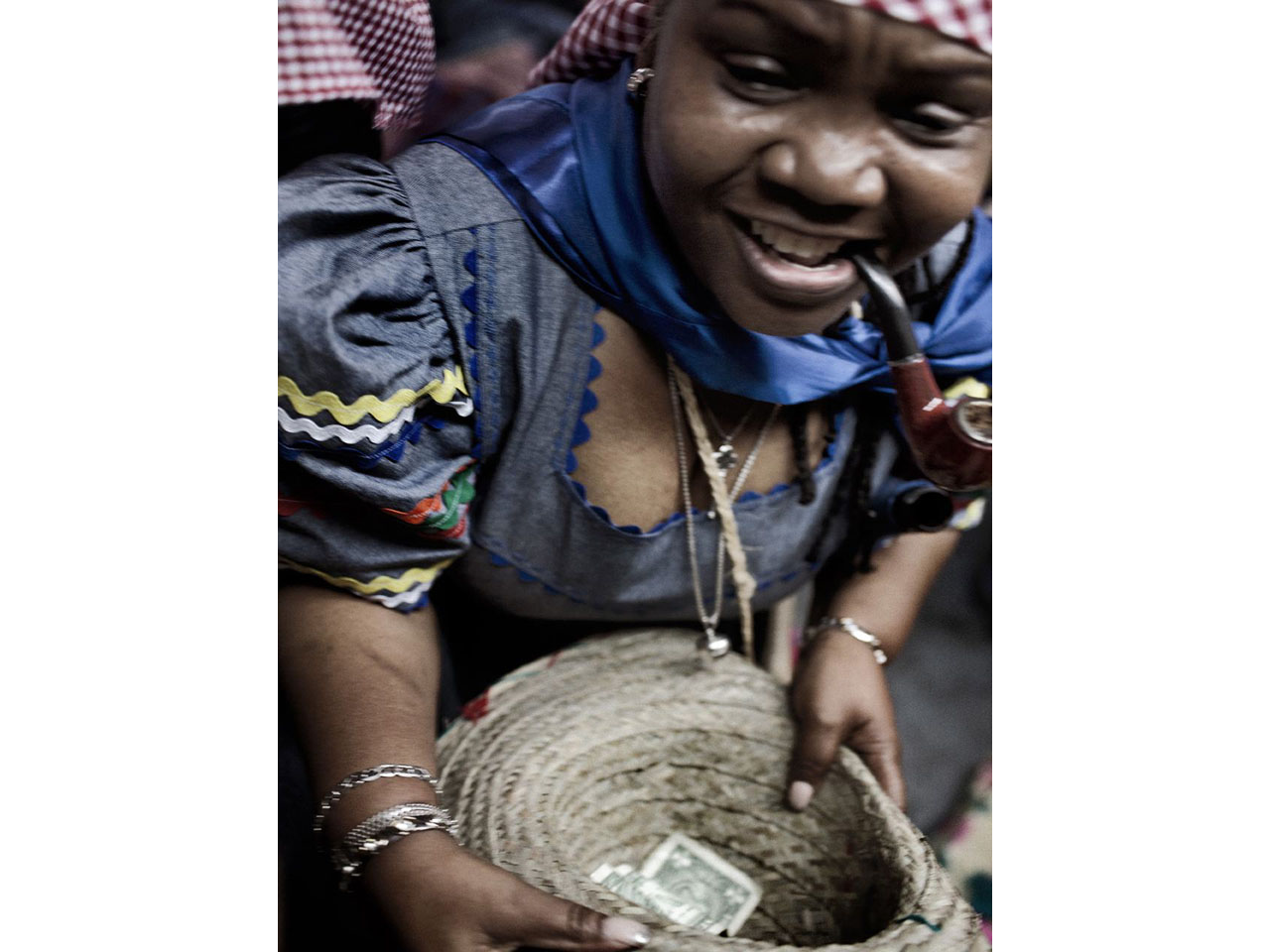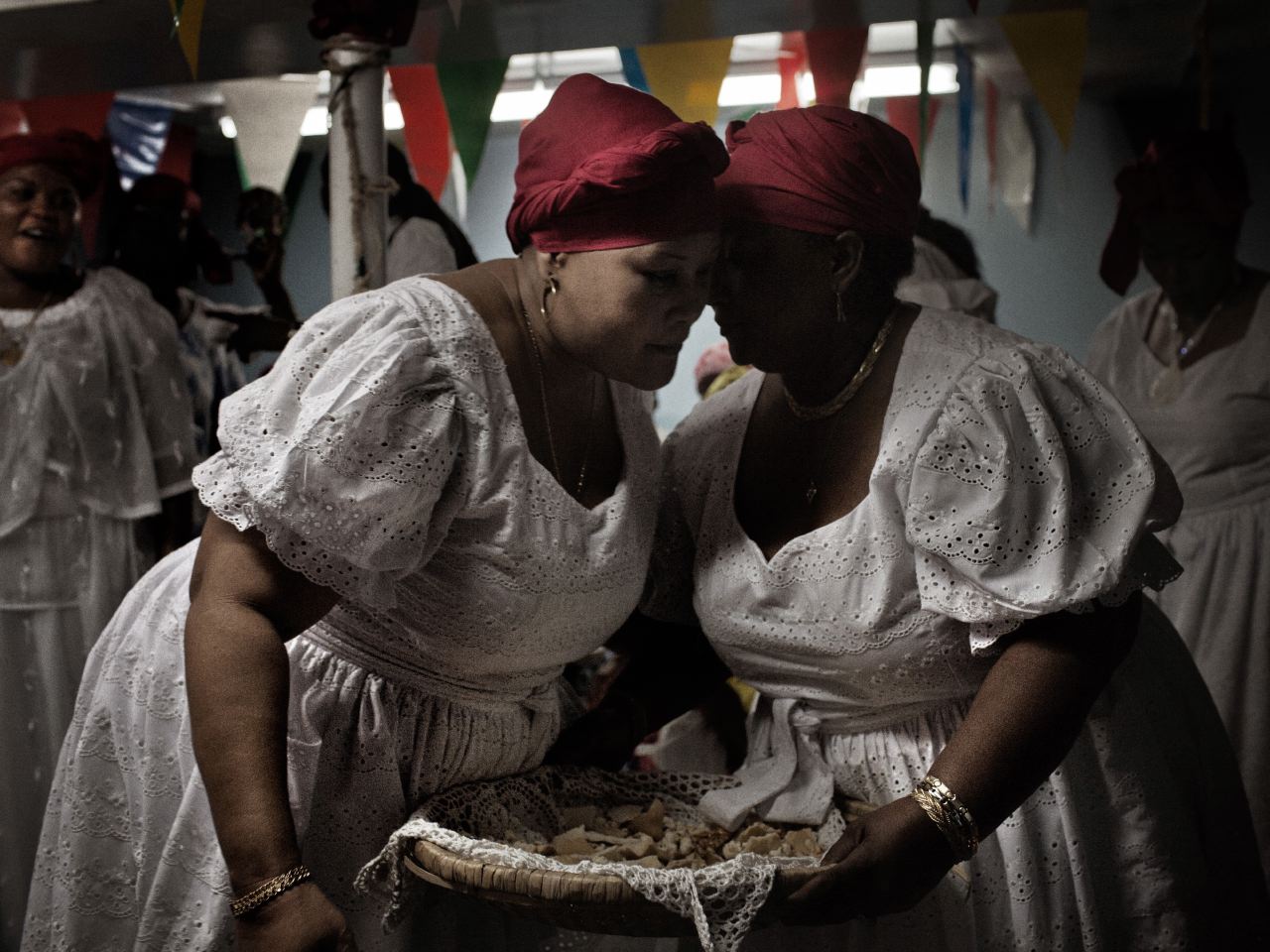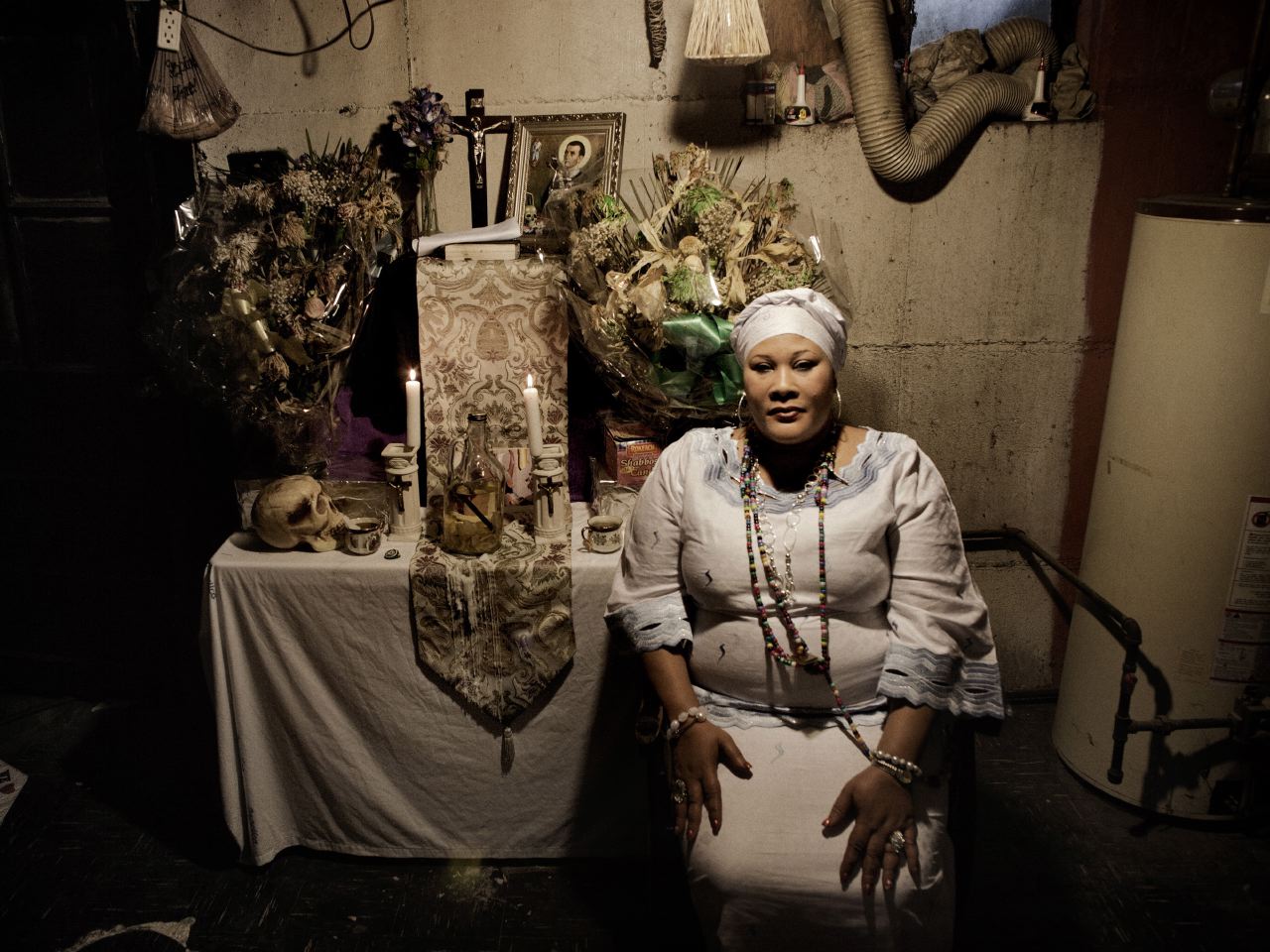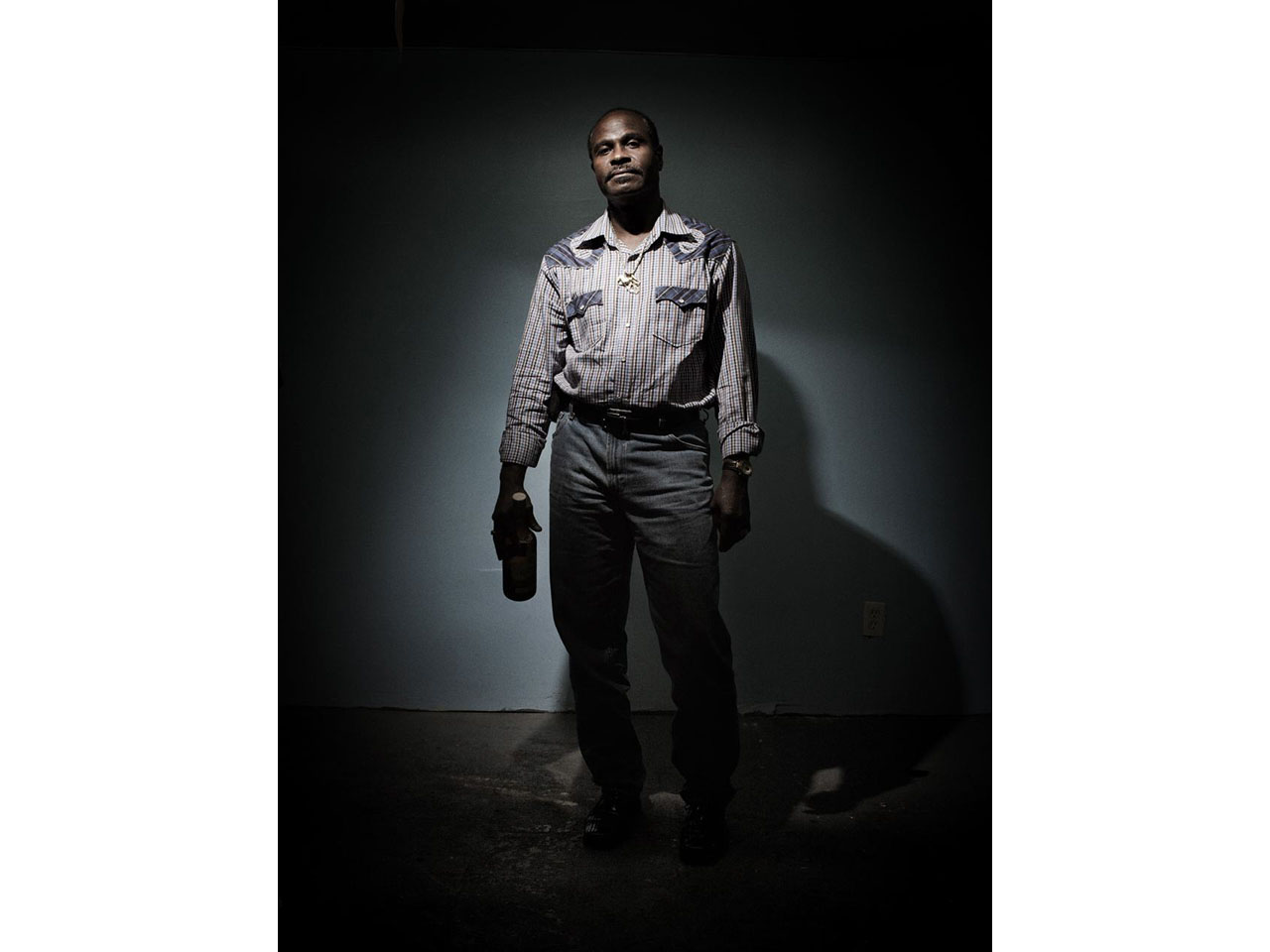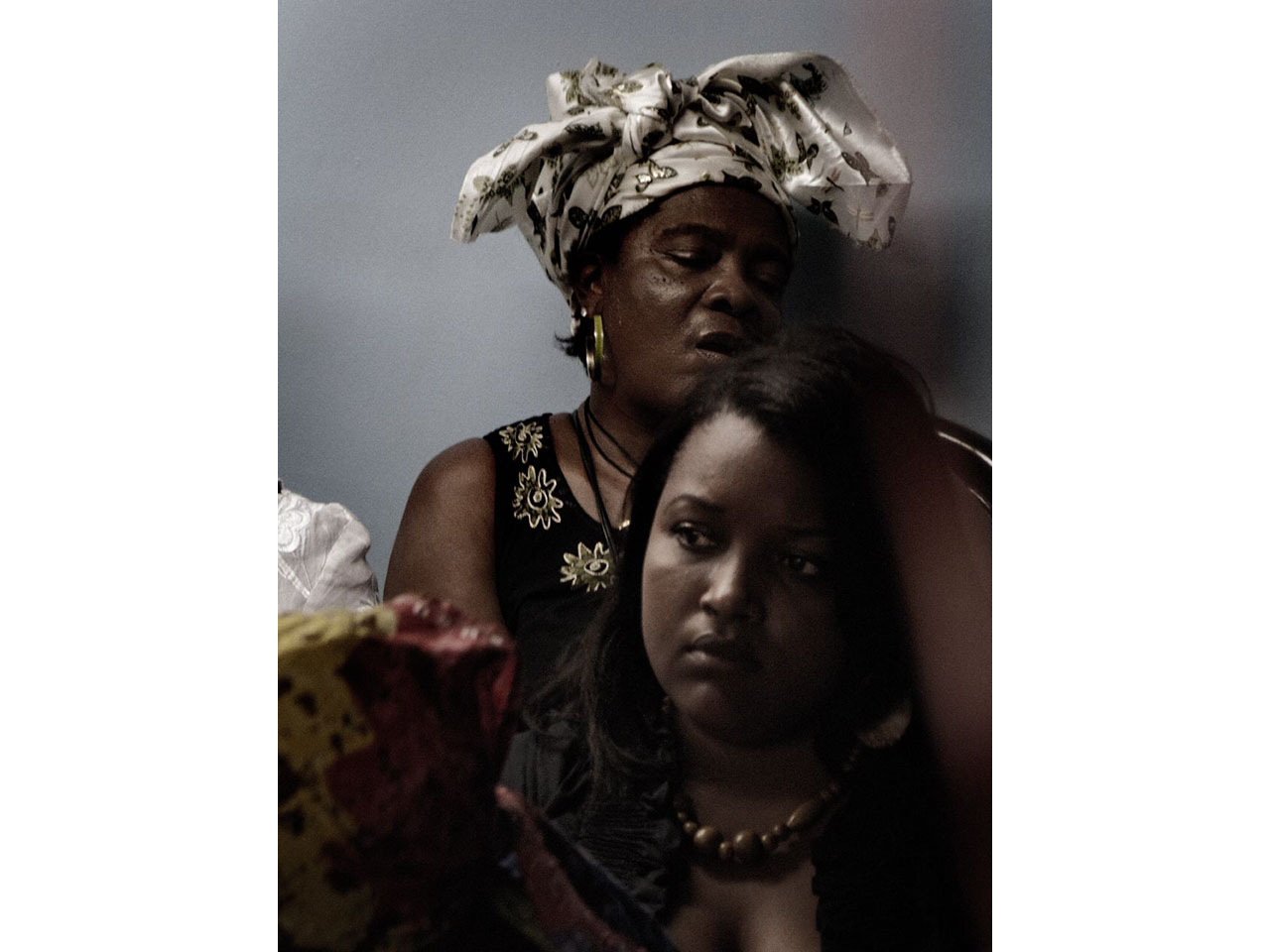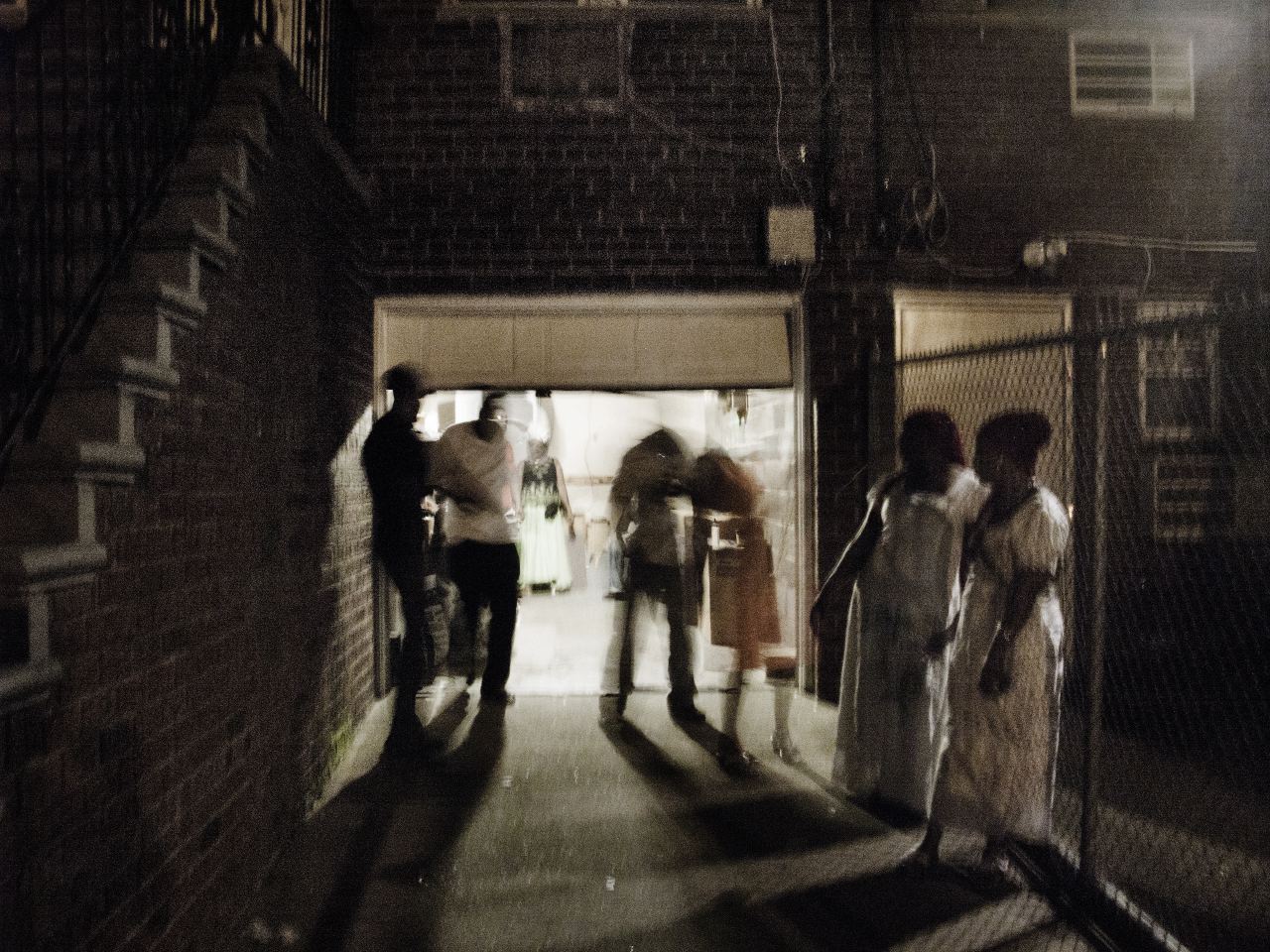BROOKLYN VODOU
Howls, trance and long machetes. Vodou has usually been stigmatized as primitive because of its emphasis on spirits and spells. But all-night ceremonies held in basements around Brooklyn and Queens only partially confirm stereotypes.
Here the most dramatic aspects of prayers are mixed with passionate dance and roaring music. This transforms rituals into festive celebrations joined by people of all ages, with spiritual possessions serving as collective catharsis for the participants.
New York City hosts the largest concentration of Haitians in the United States and has witnessed a resurgence of vodou practice among members of this vast comunity.
Vodou has always served as a source of empowerment against oppressive government and grinding poverty and since the Haitian revolution against French rule in the XVIII century, it has long been misunderstood and maligned in Western popular culture. But efforts to suppress it have always failed. And now large numbers of emigrants are turning back to it as a means to reconnect with their roots in response to financial hardship caused by the recession and to the sufferings brought by the earthquake that stroke the impoverished island last year.
Practitioners in New York gather in nightly marathons made of food, songs and prayers. These moments offer an opportunity to share feelings and reconnect with spirituality. But also to subvert traditional roles, with women leading the rituals and dominating the scene. - Text by Nicola Scevola

